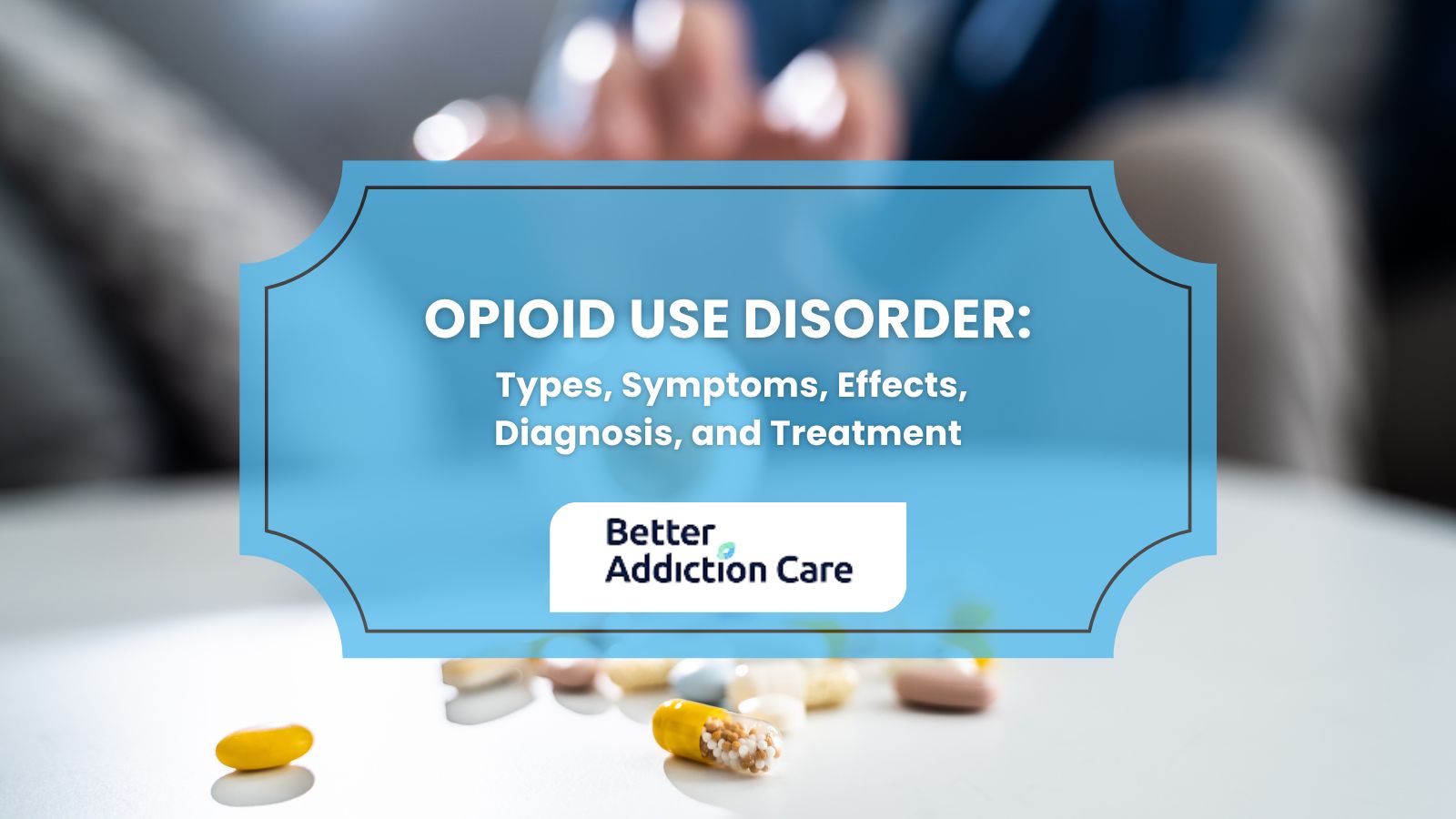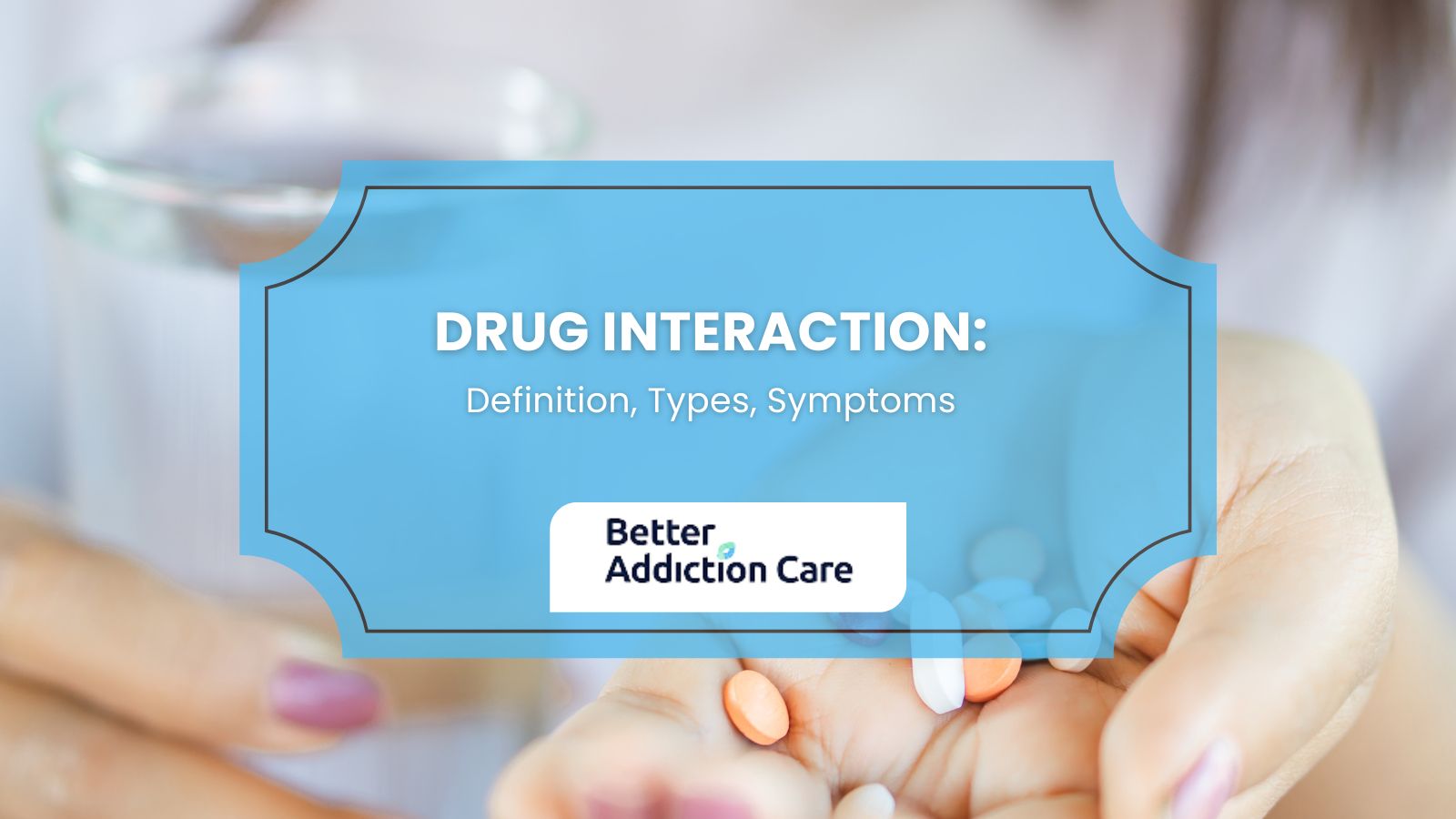117 Best Alcohol and Drug Rehabs in Connecticut 2025
Searching for drug rehab centers in Connecticut? Our directory lists 117+ drug rehab centers, including inpatient and outpatient facilities, detox centers, and medication-assisted treatment (MAT) programs to support recovery.
Compare treatment options, locations, and services to find the right facility for your needs. Whether you’re looking for medical detox, behavioral therapy, or long-term recovery programs, explore verified providers in Connecticut.
Browse the listings below to find the best accredited addiction treatment centers near you and take the next step toward recovery.
117 Treatment Centers in Connecticut, US

6.85

6.56

7.54
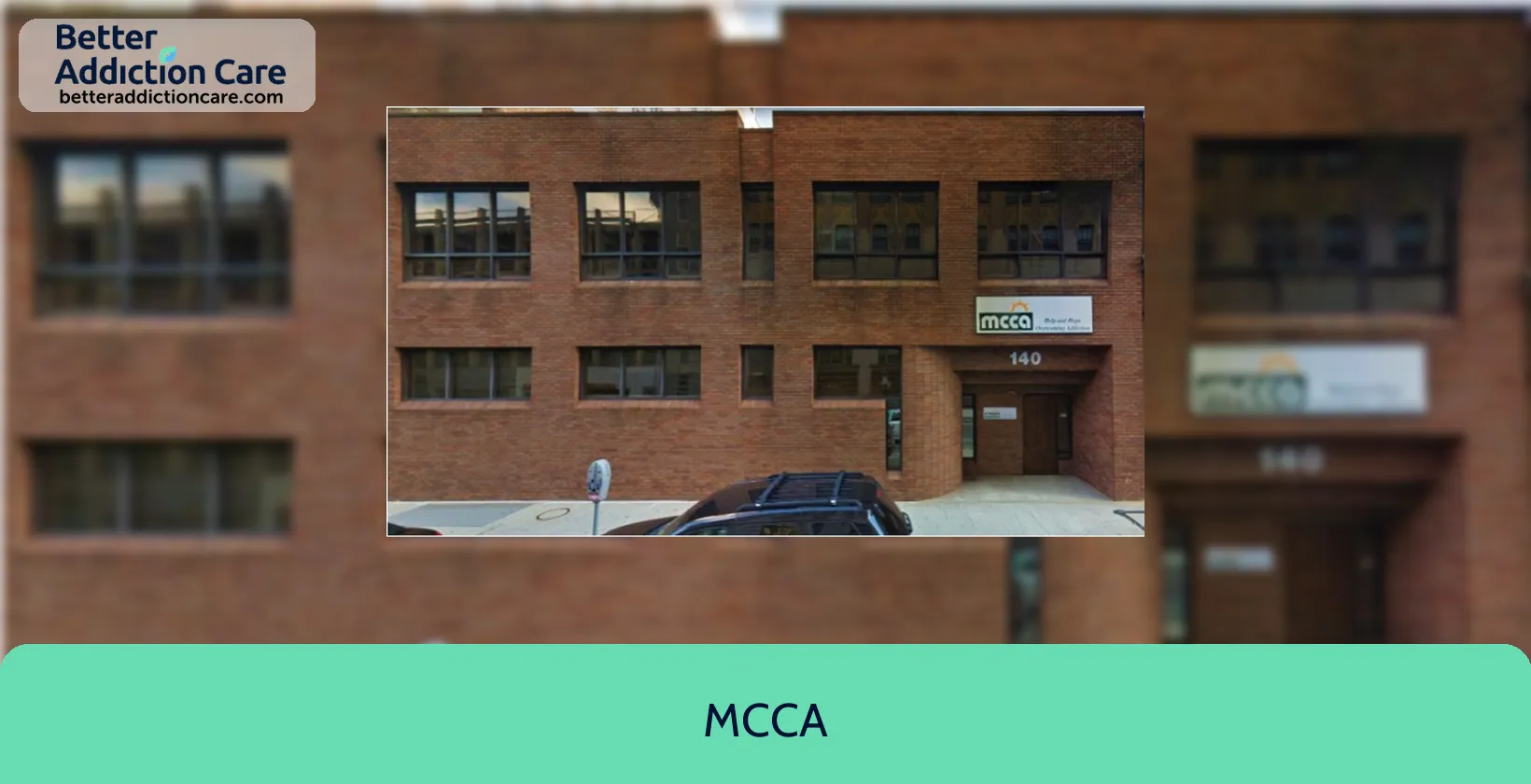
6.84
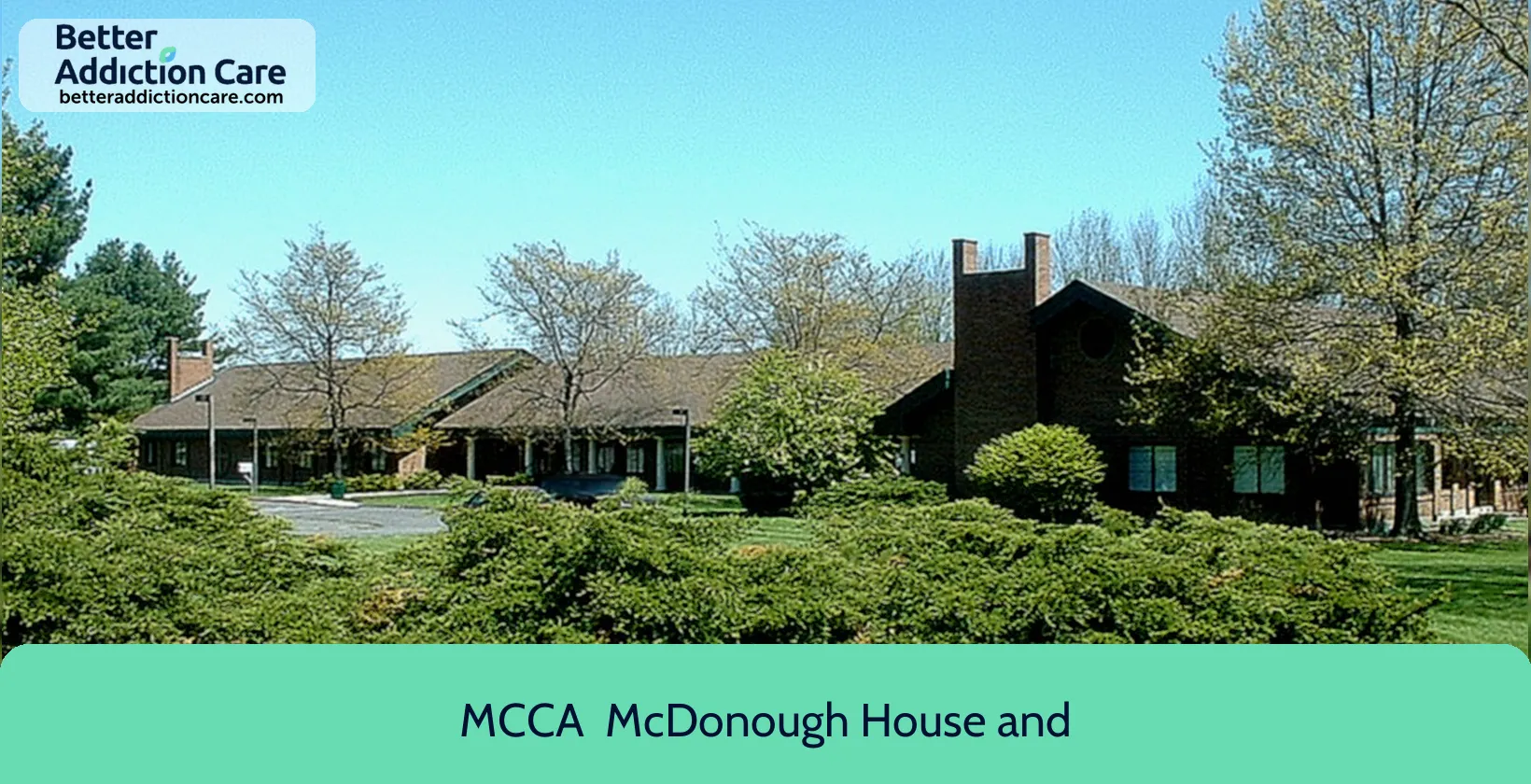
7.70
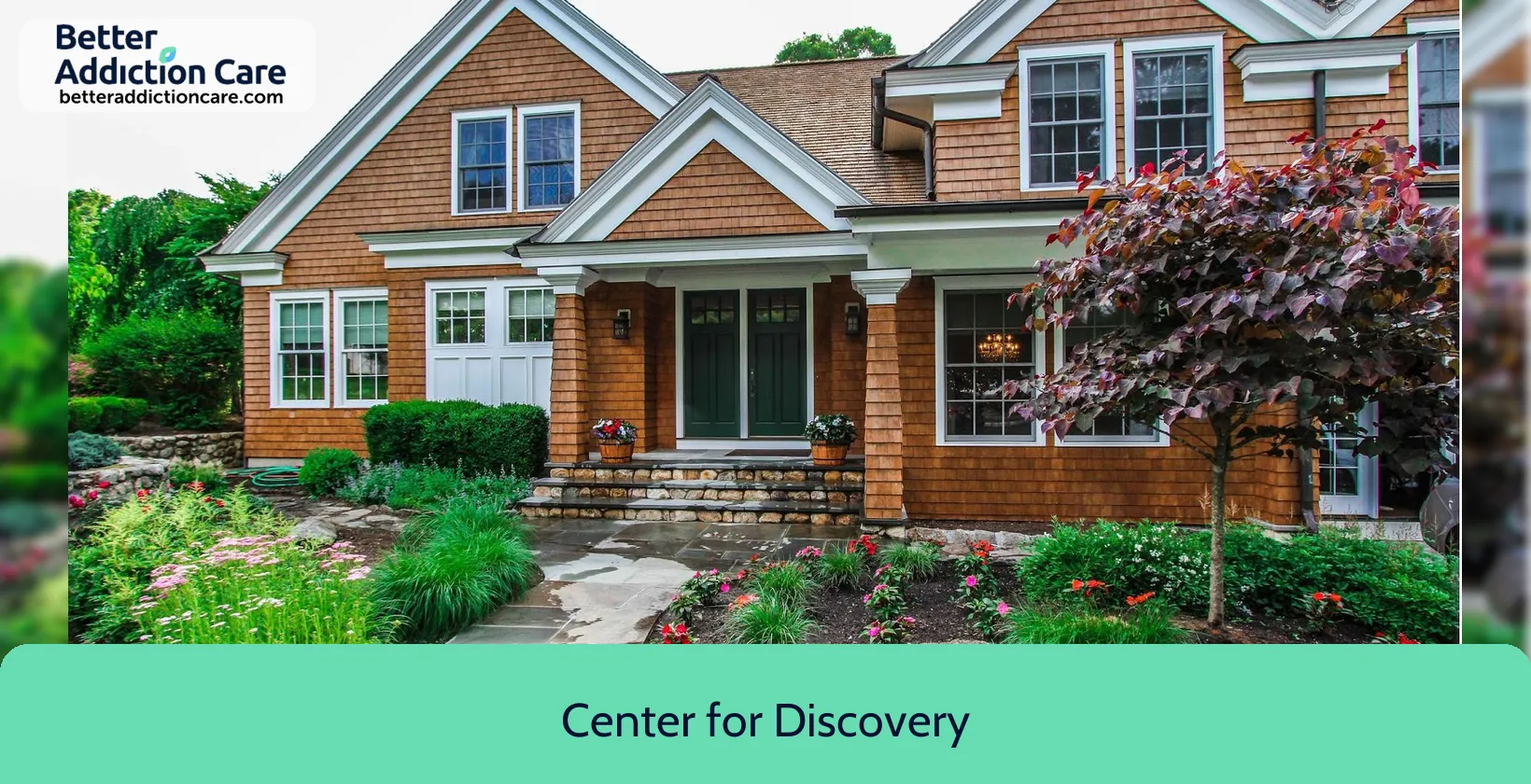
6.66

6.92
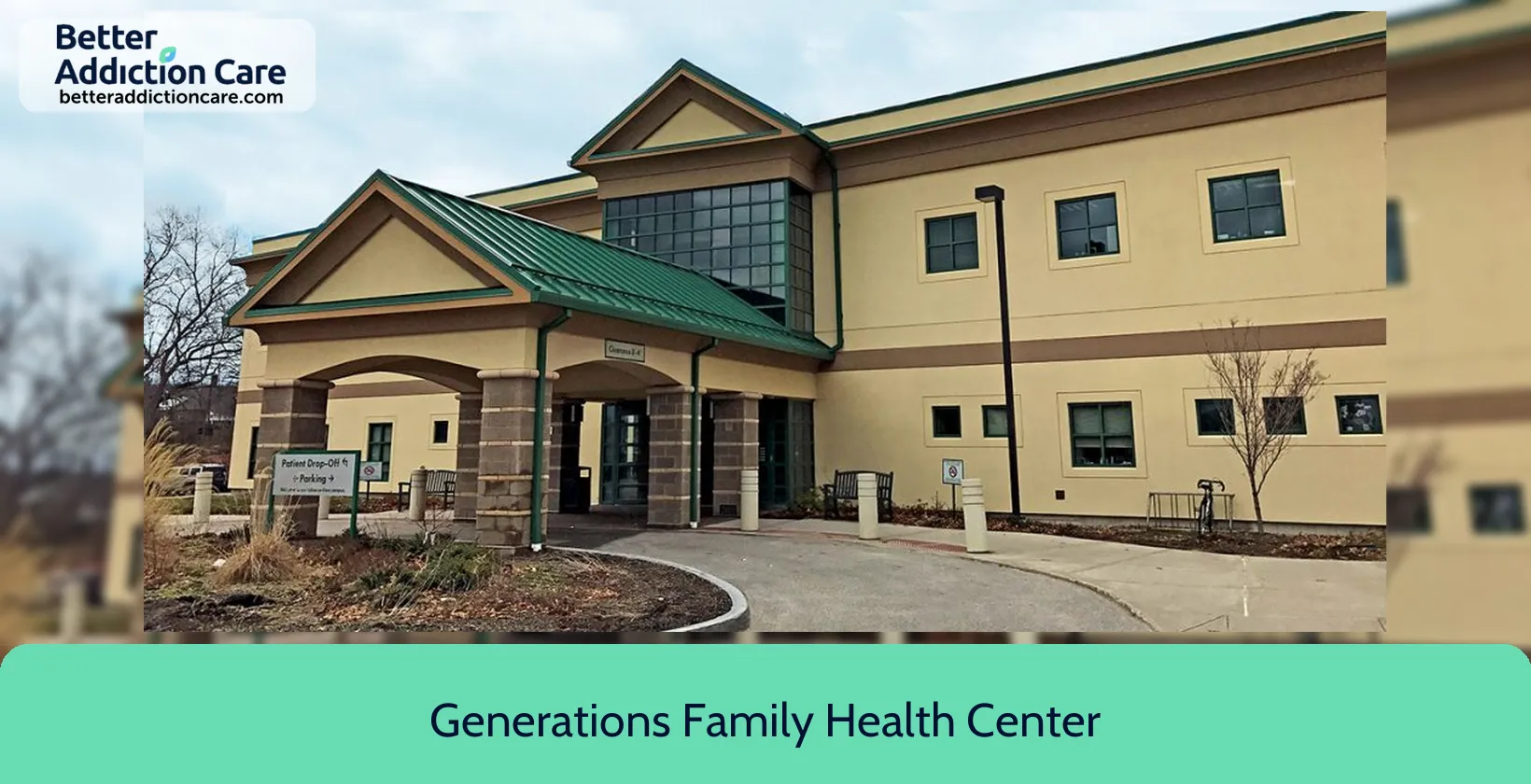
6.71
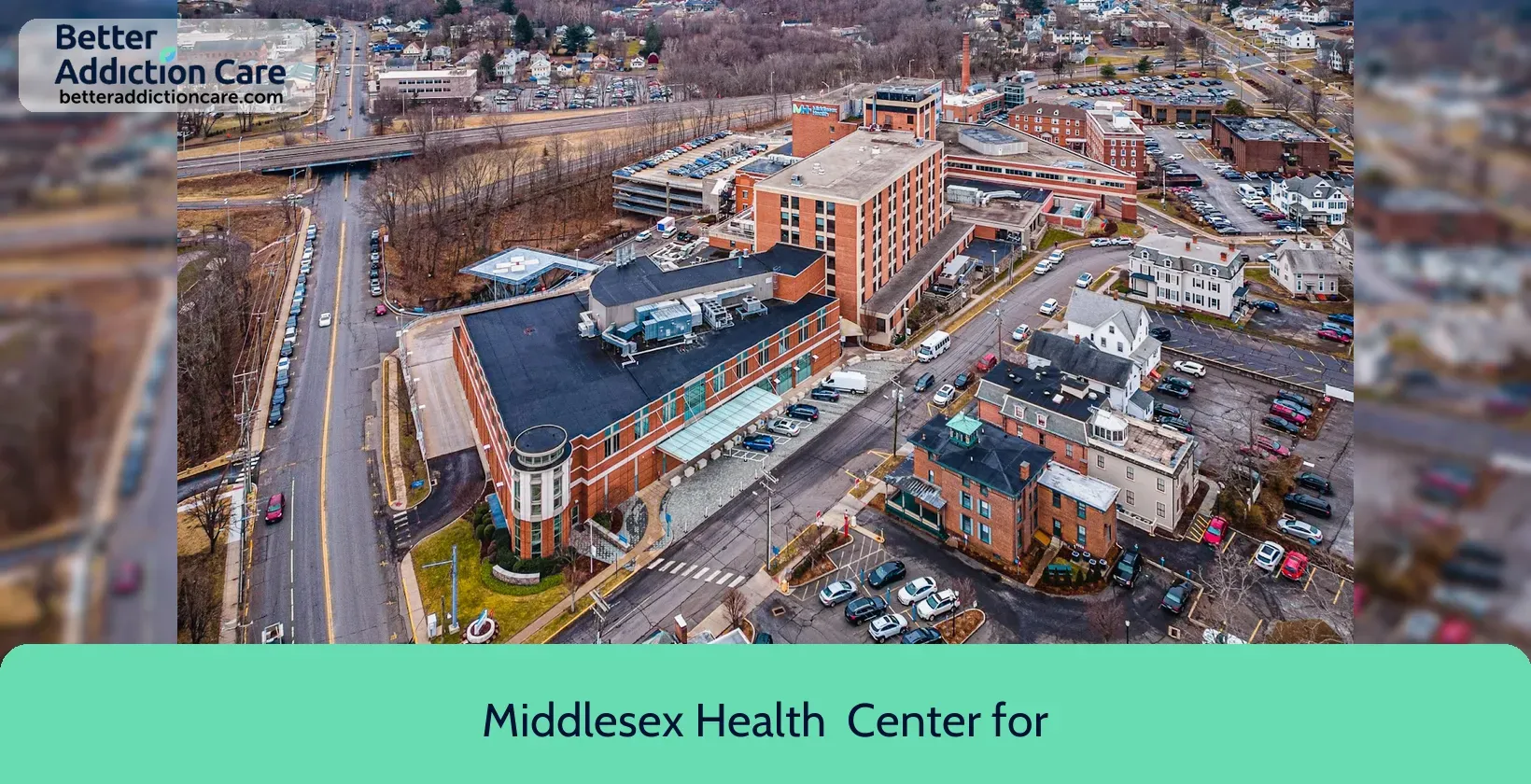
6.68
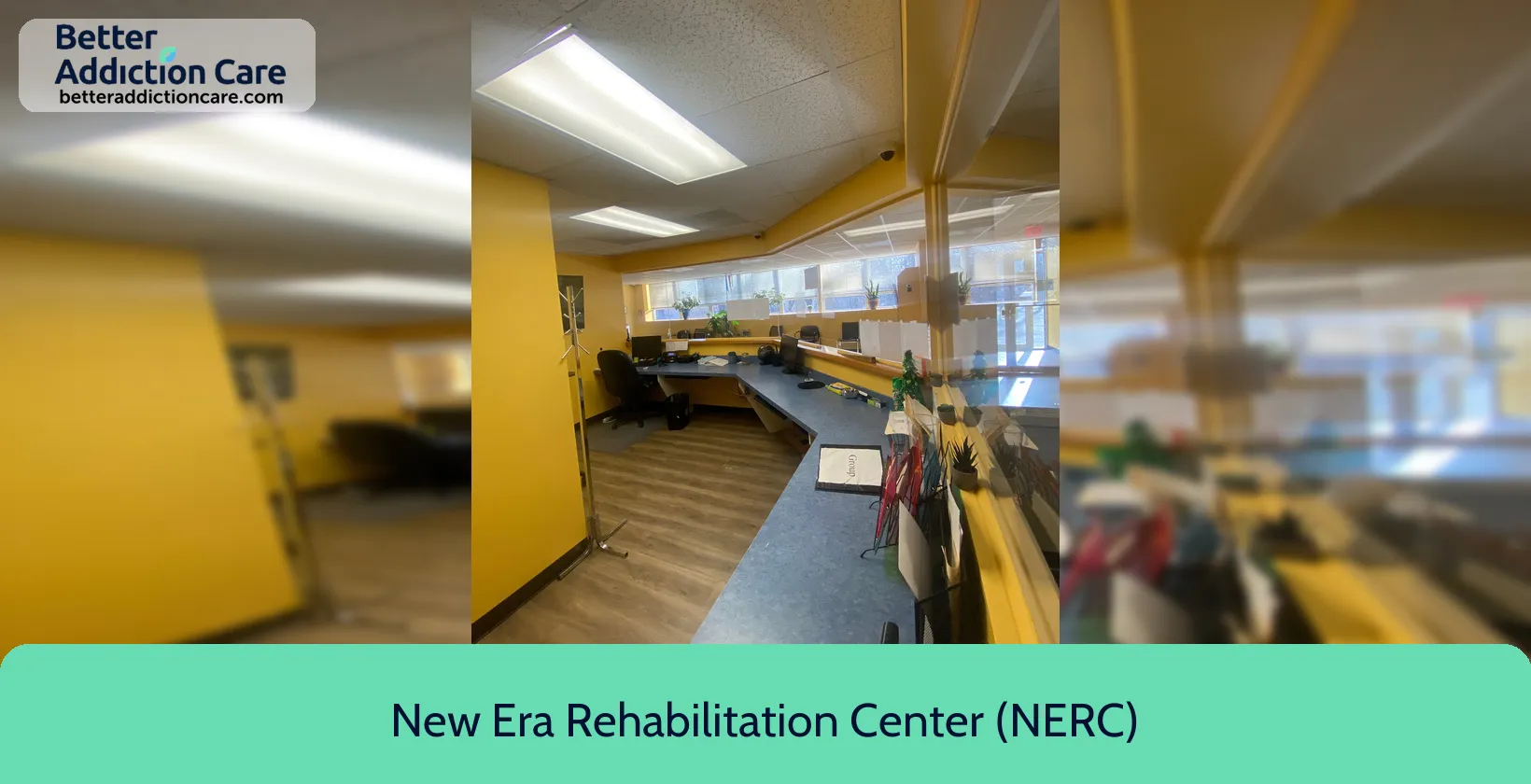
7.63
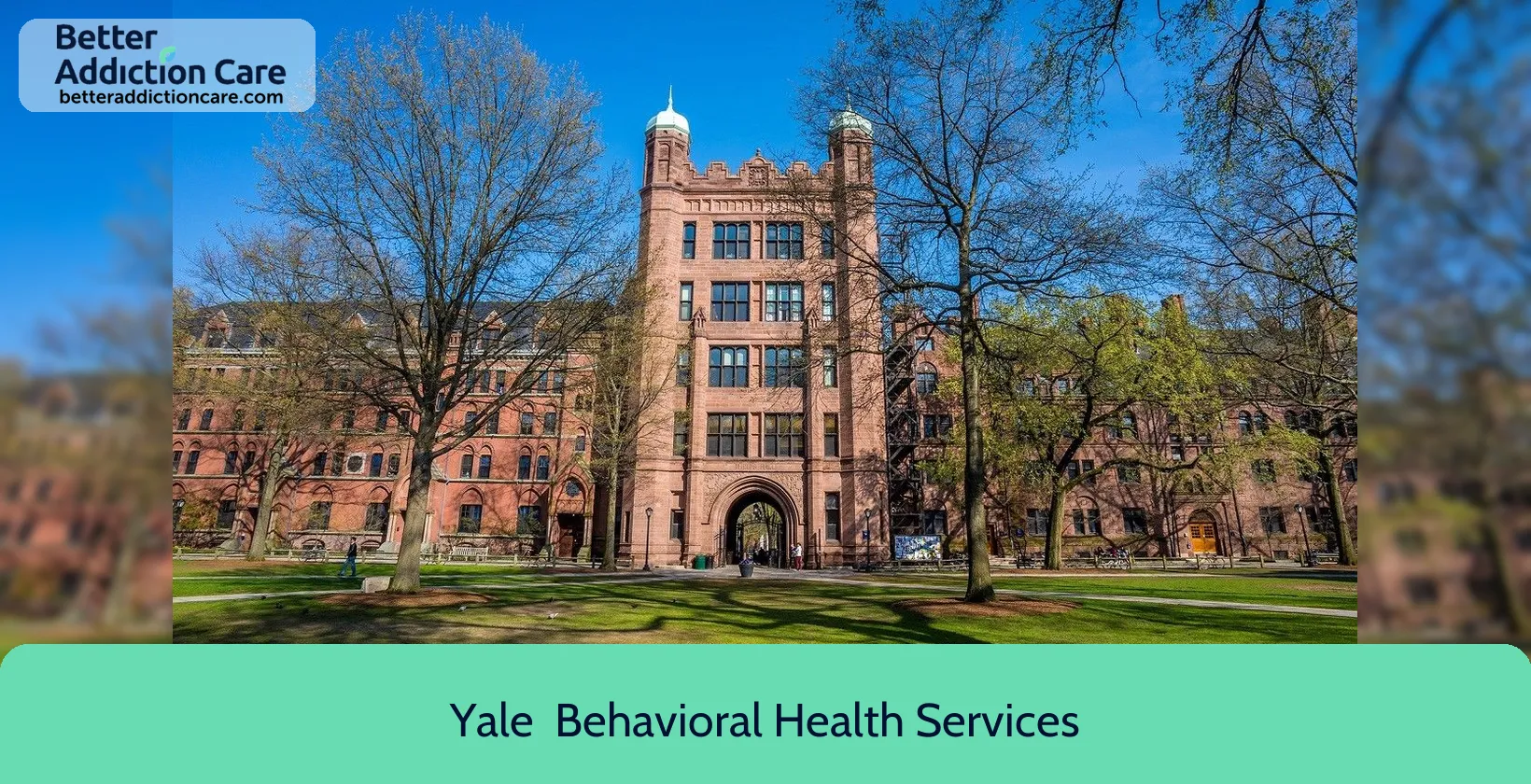
6.71
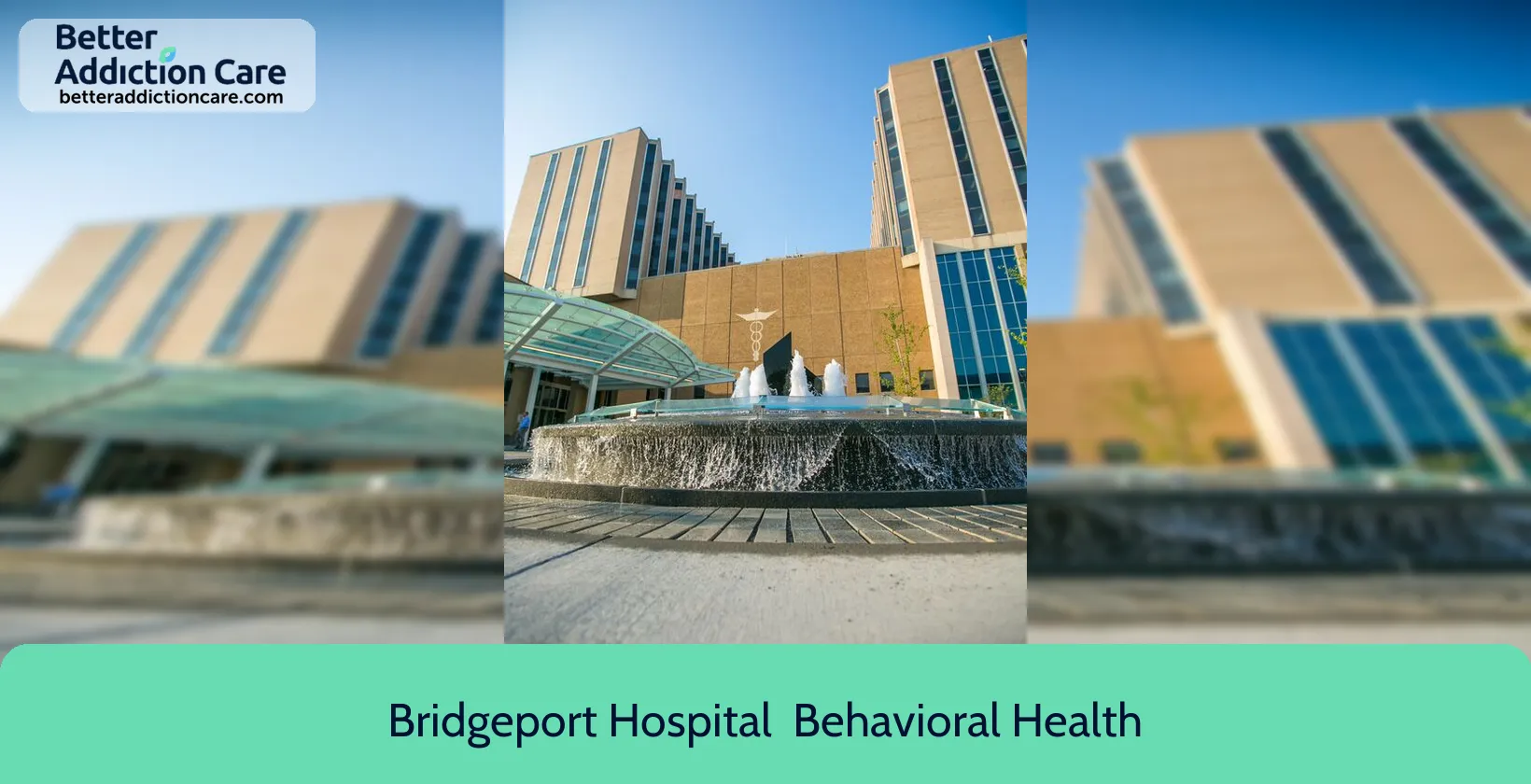
6.59

6.68

7.43
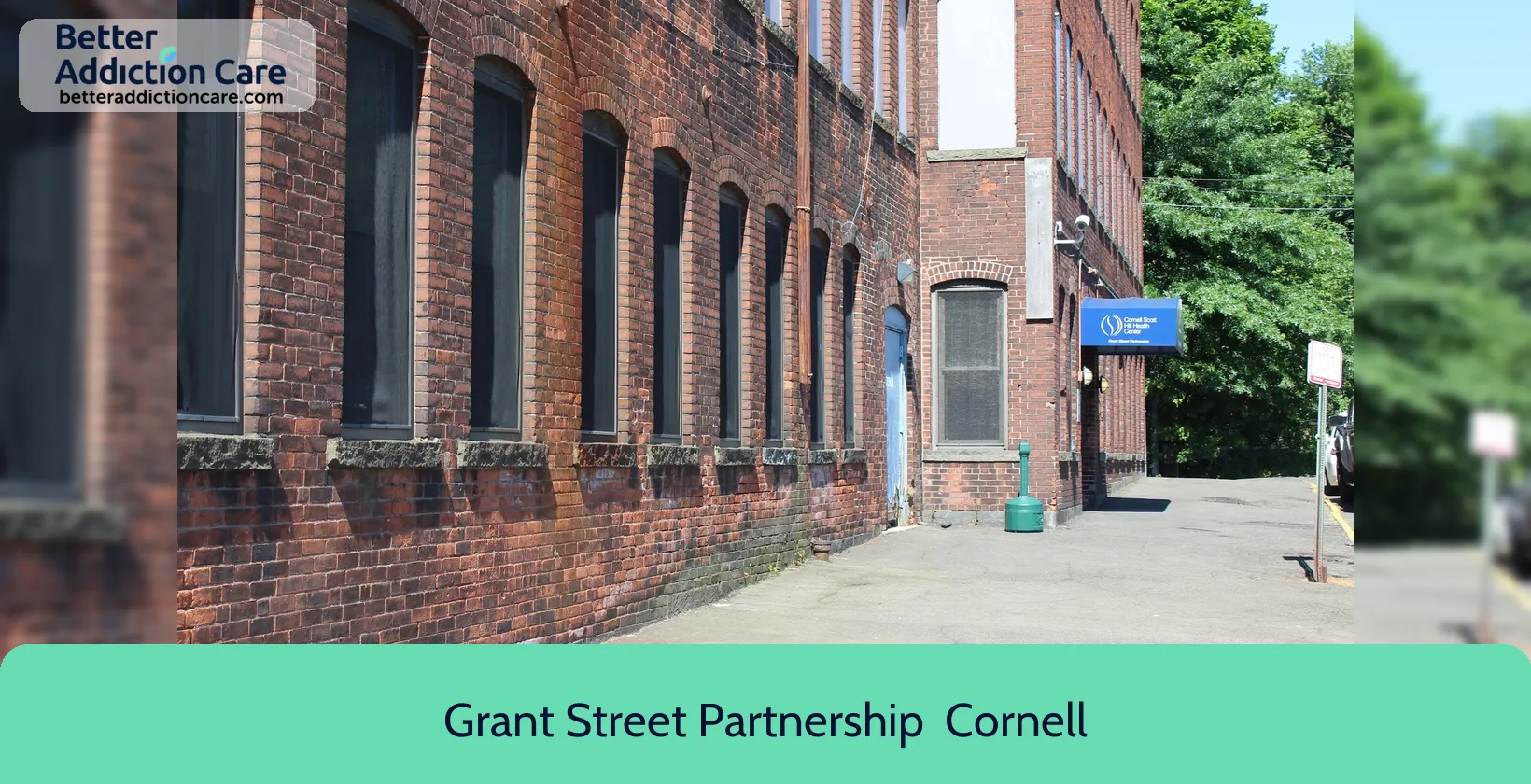
7.39
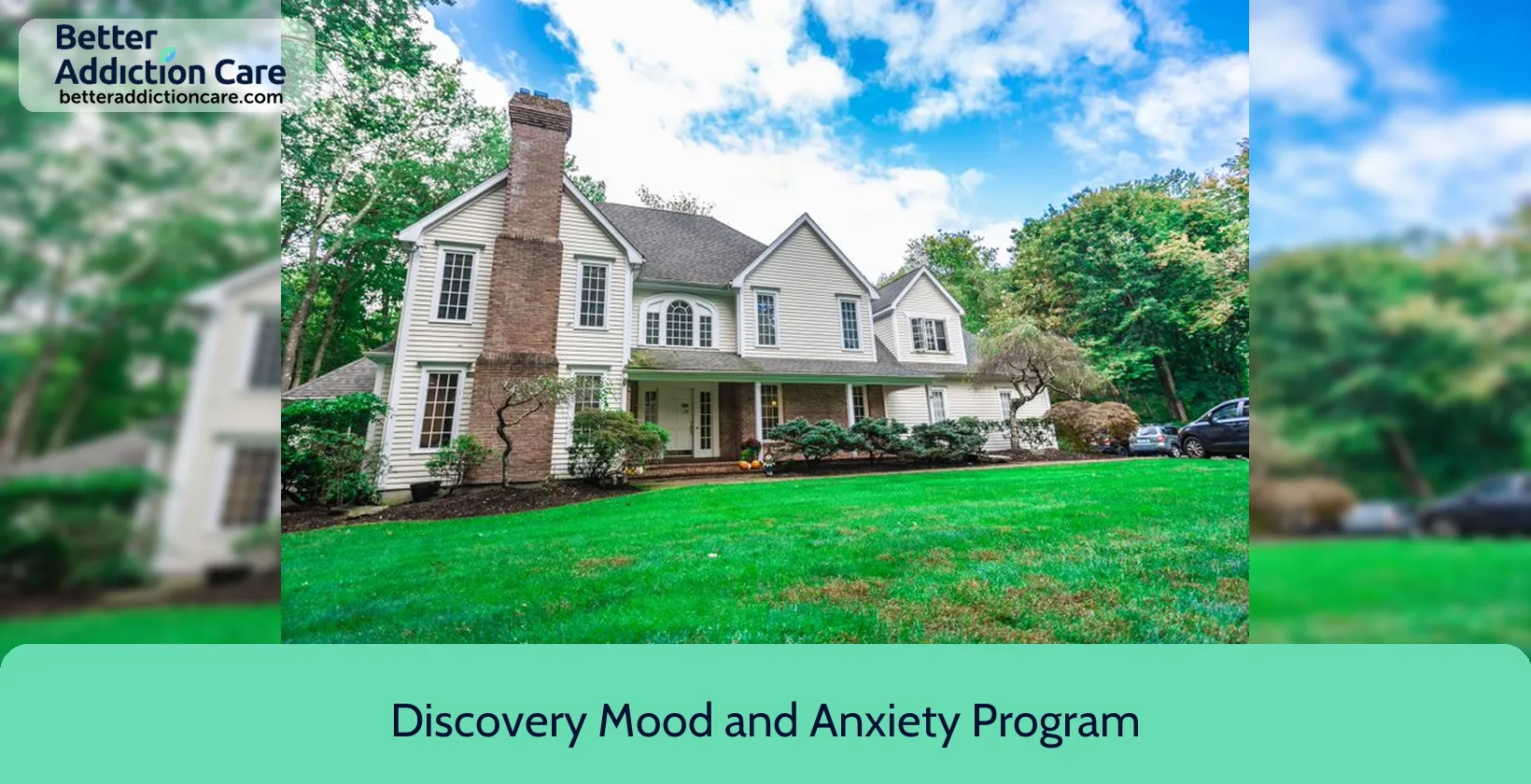
6.65
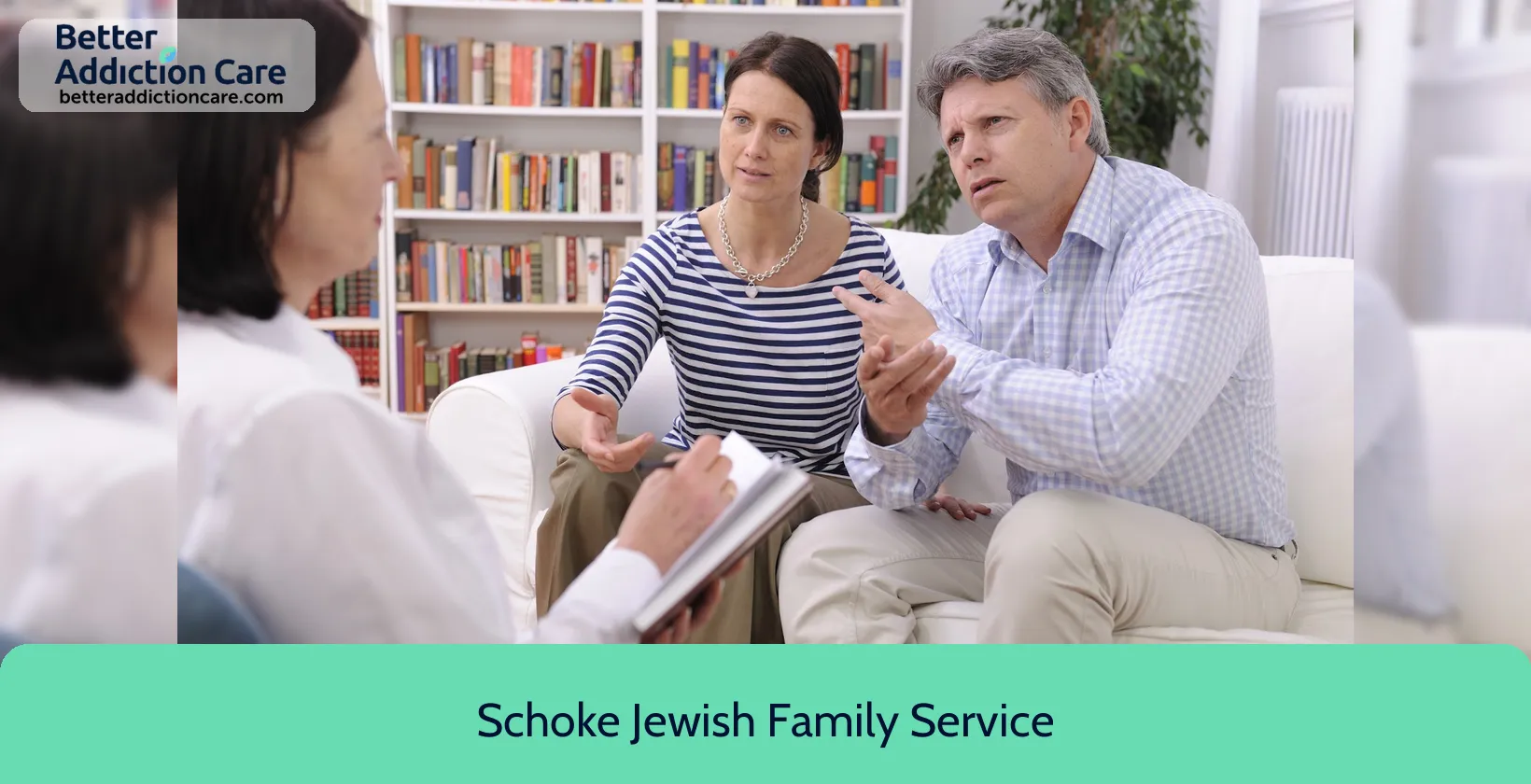
6.62

7.46
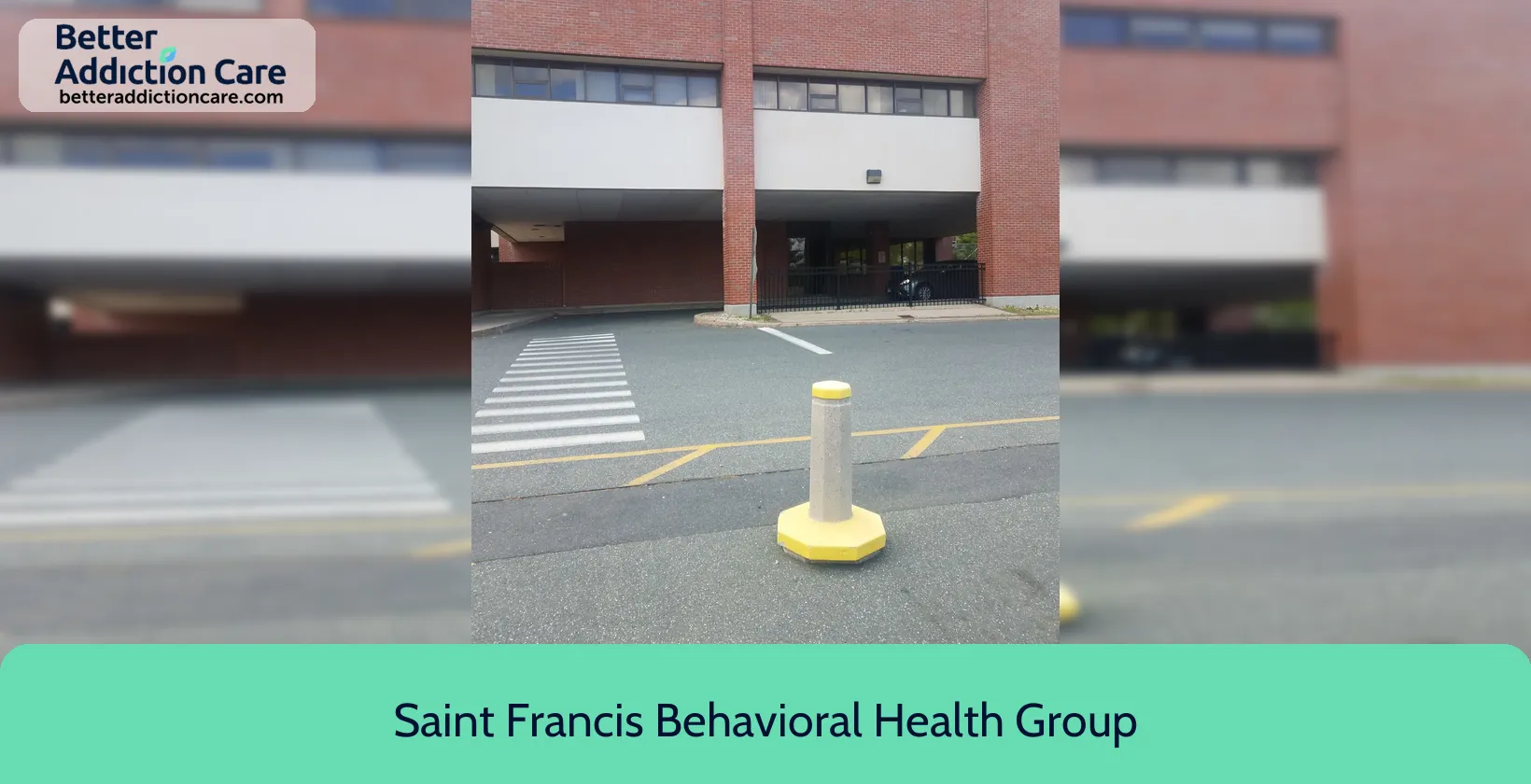
7.08
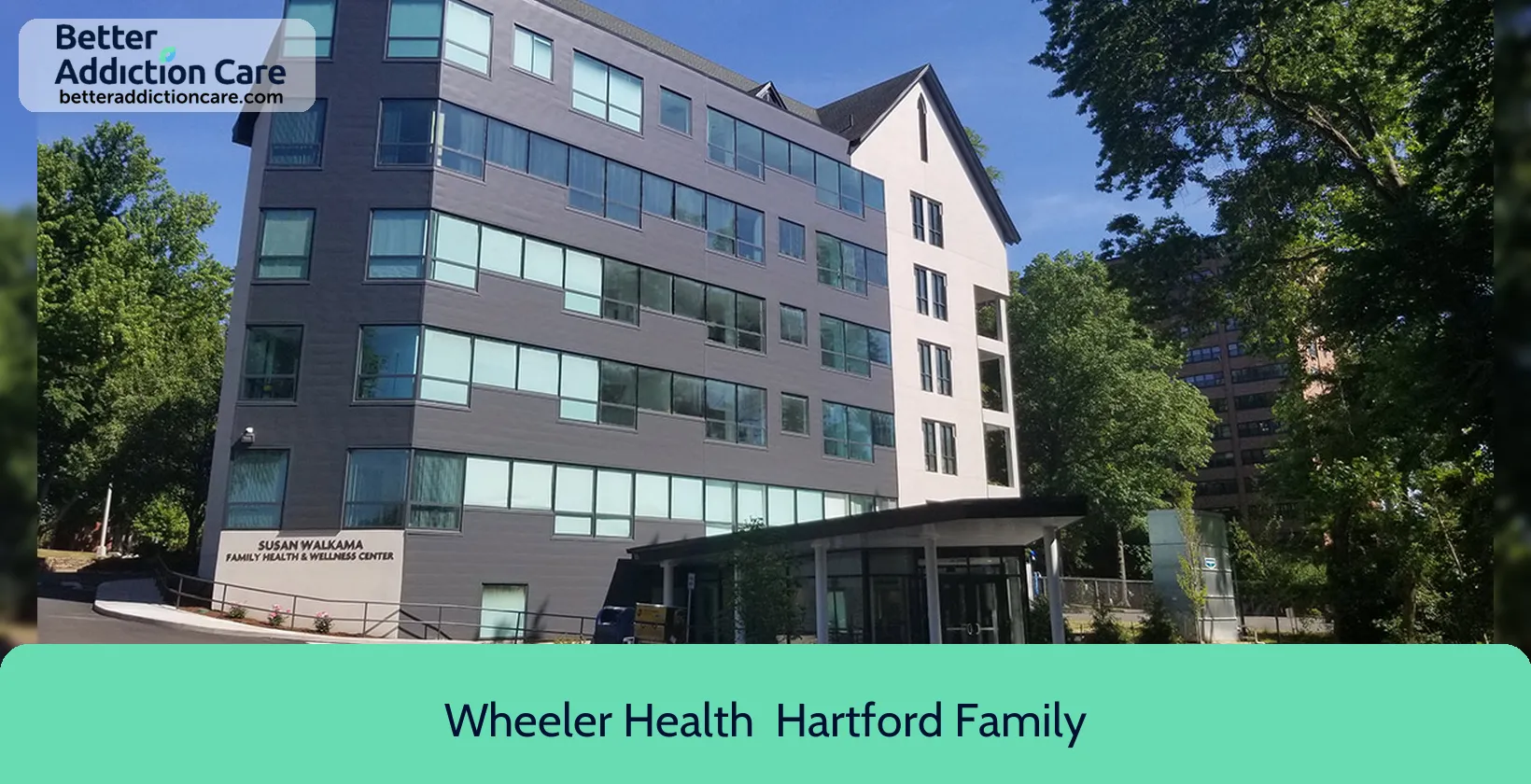
7.11
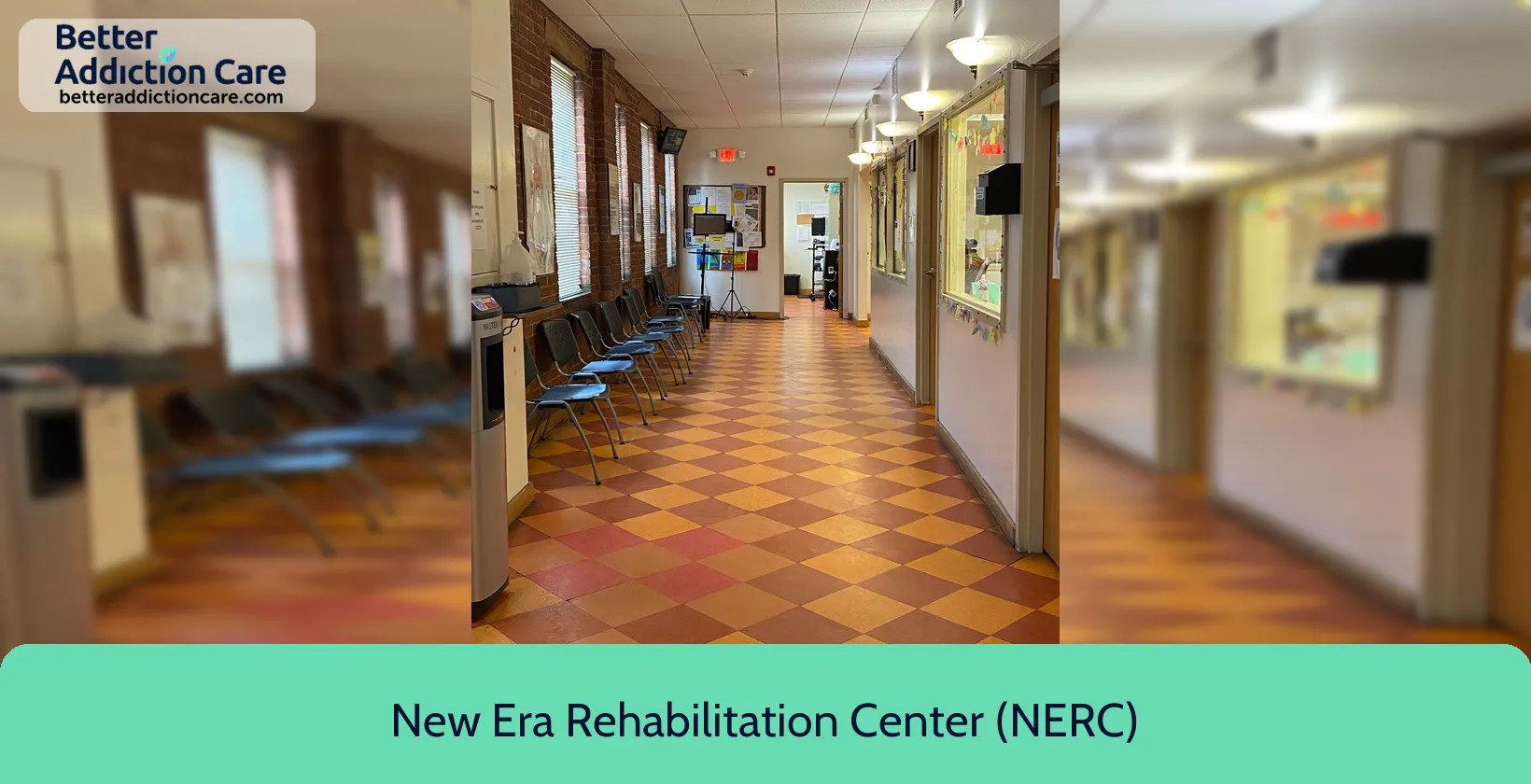
7.52
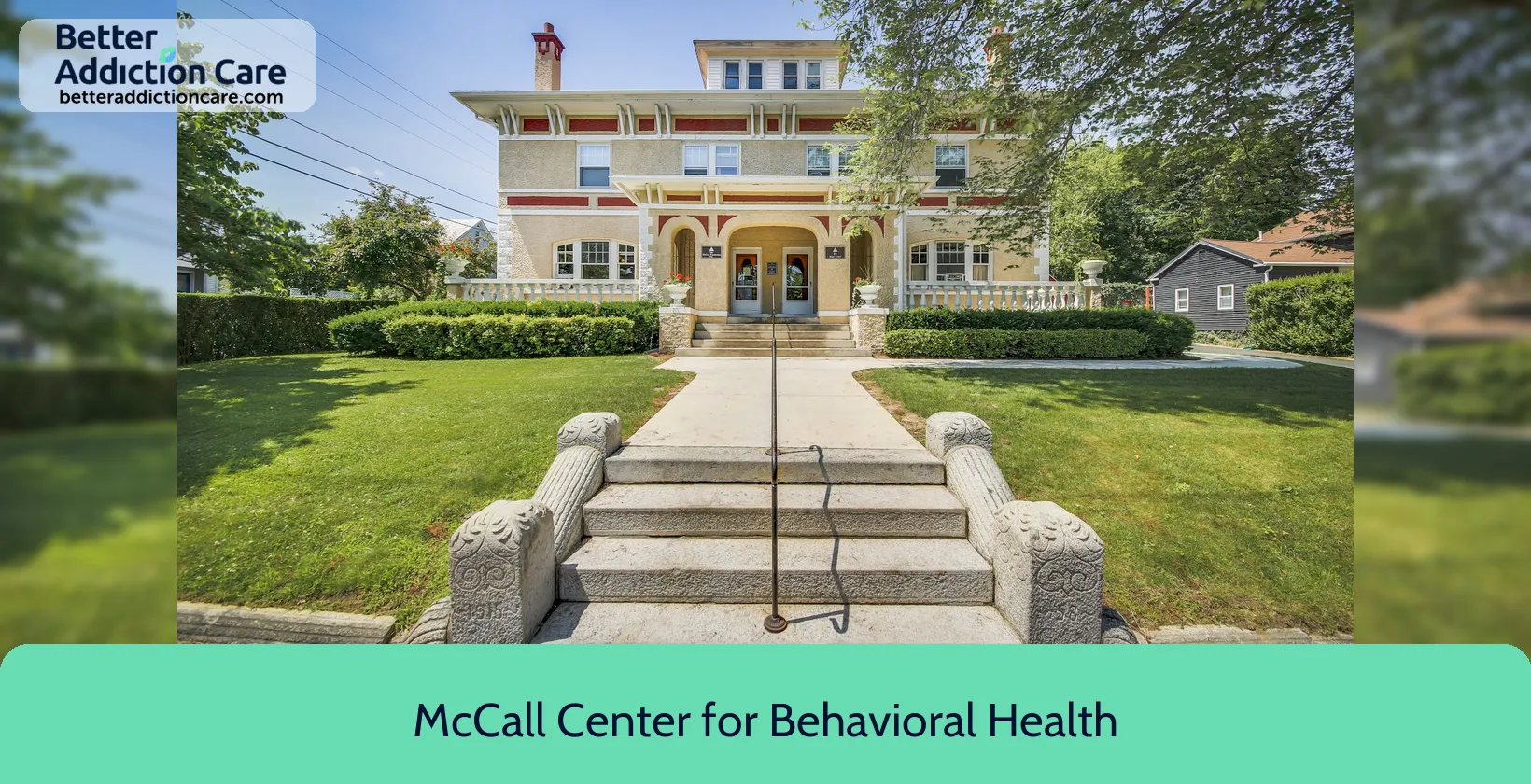
7.68
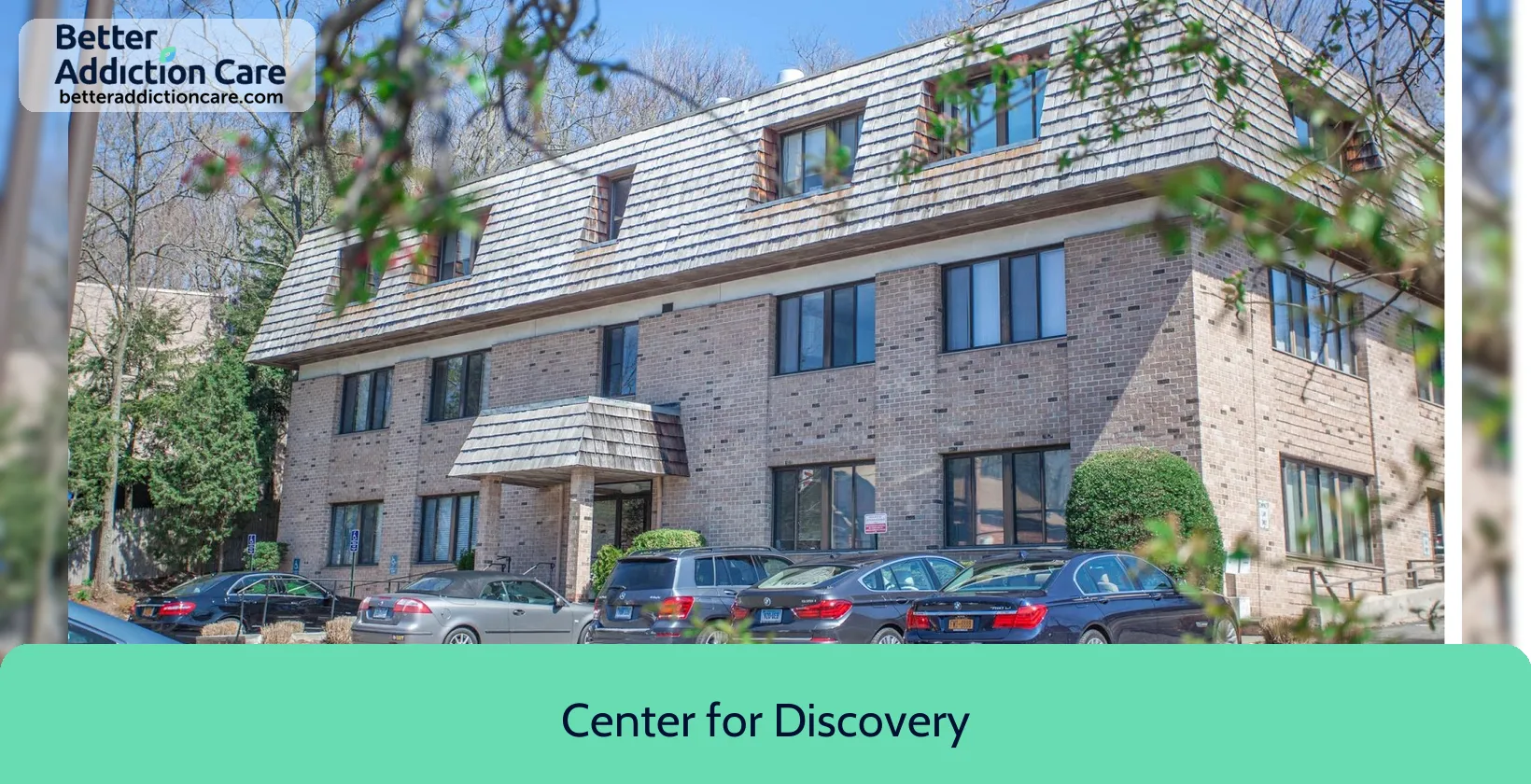
6.91
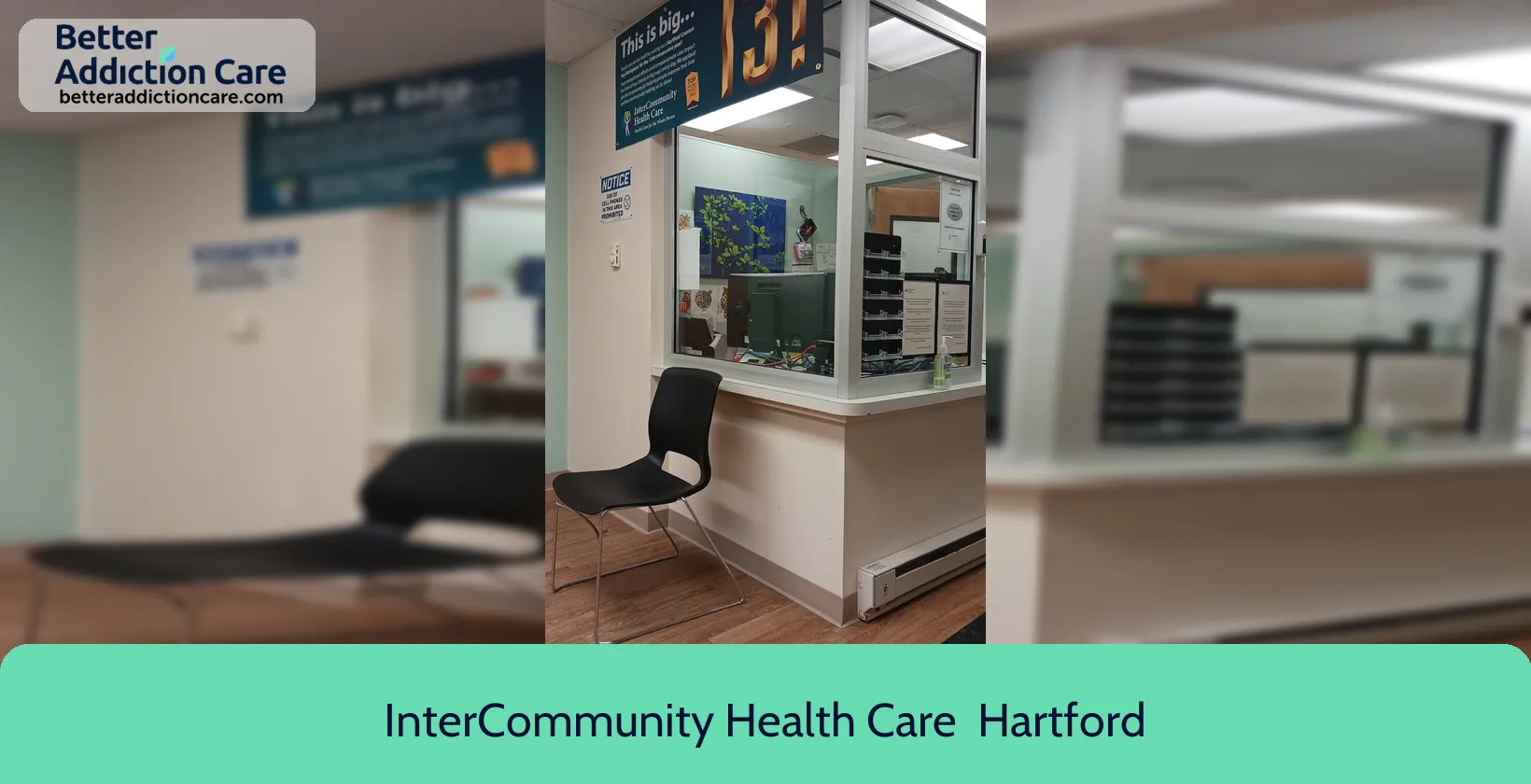
7.84
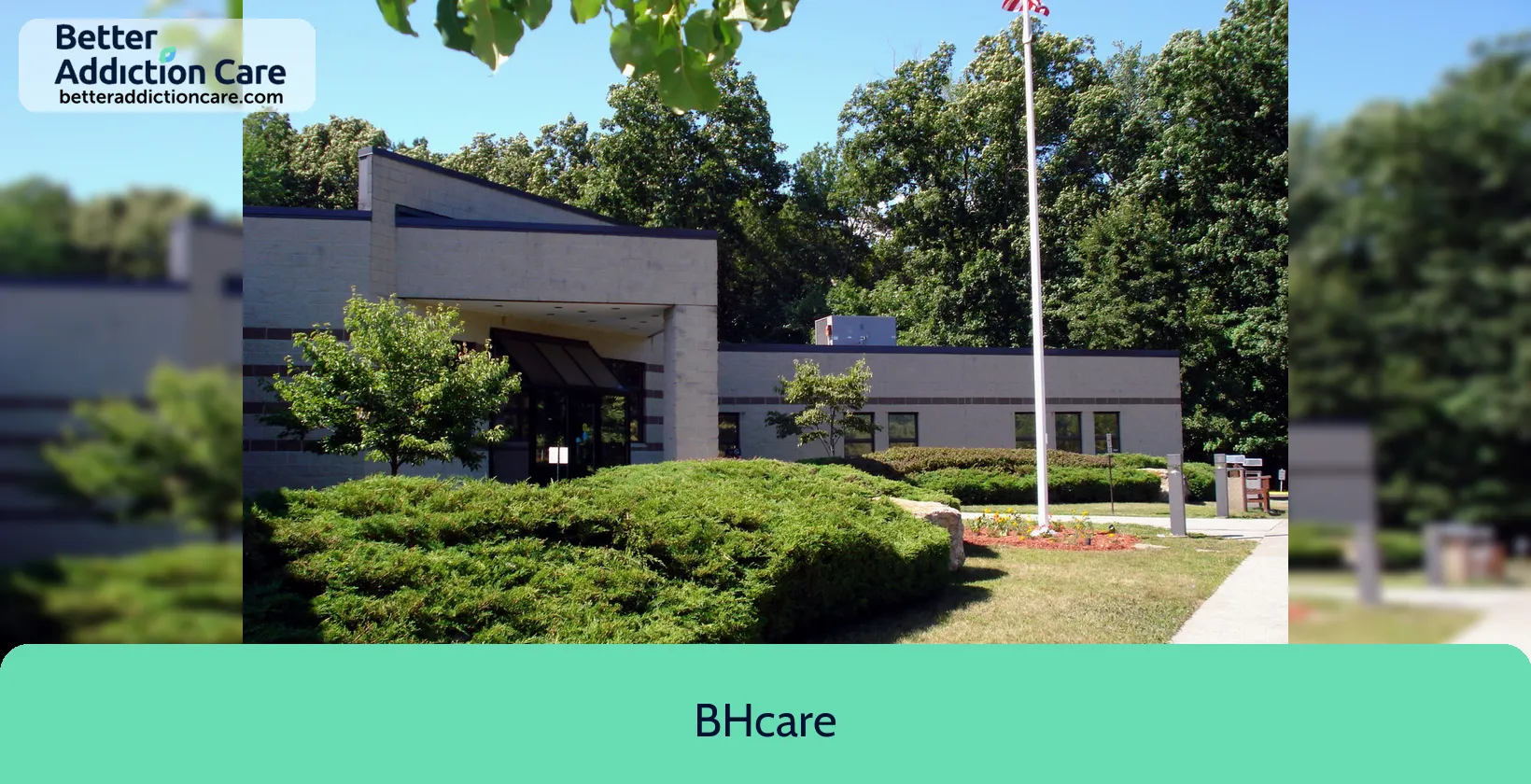
7.54
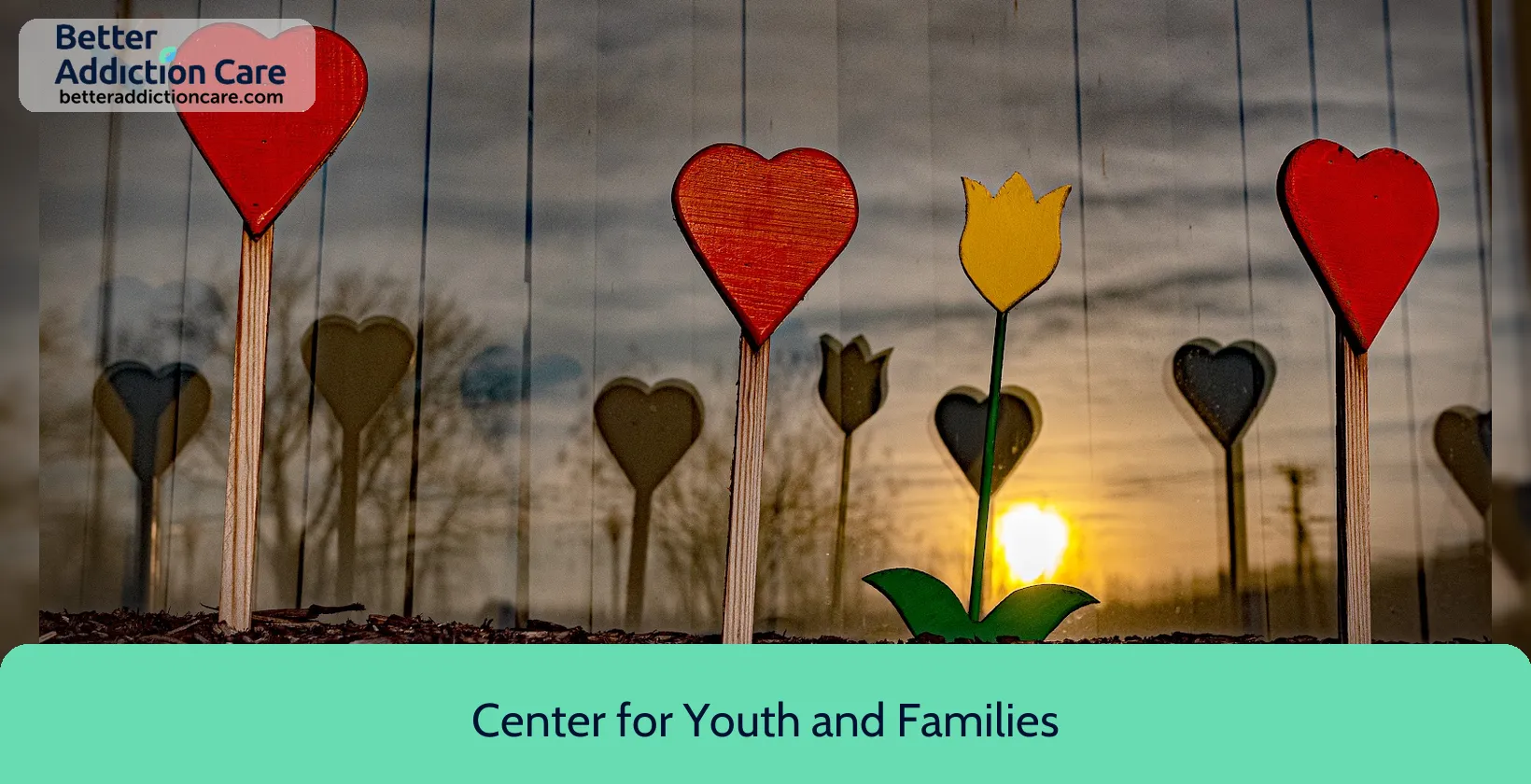
6.62
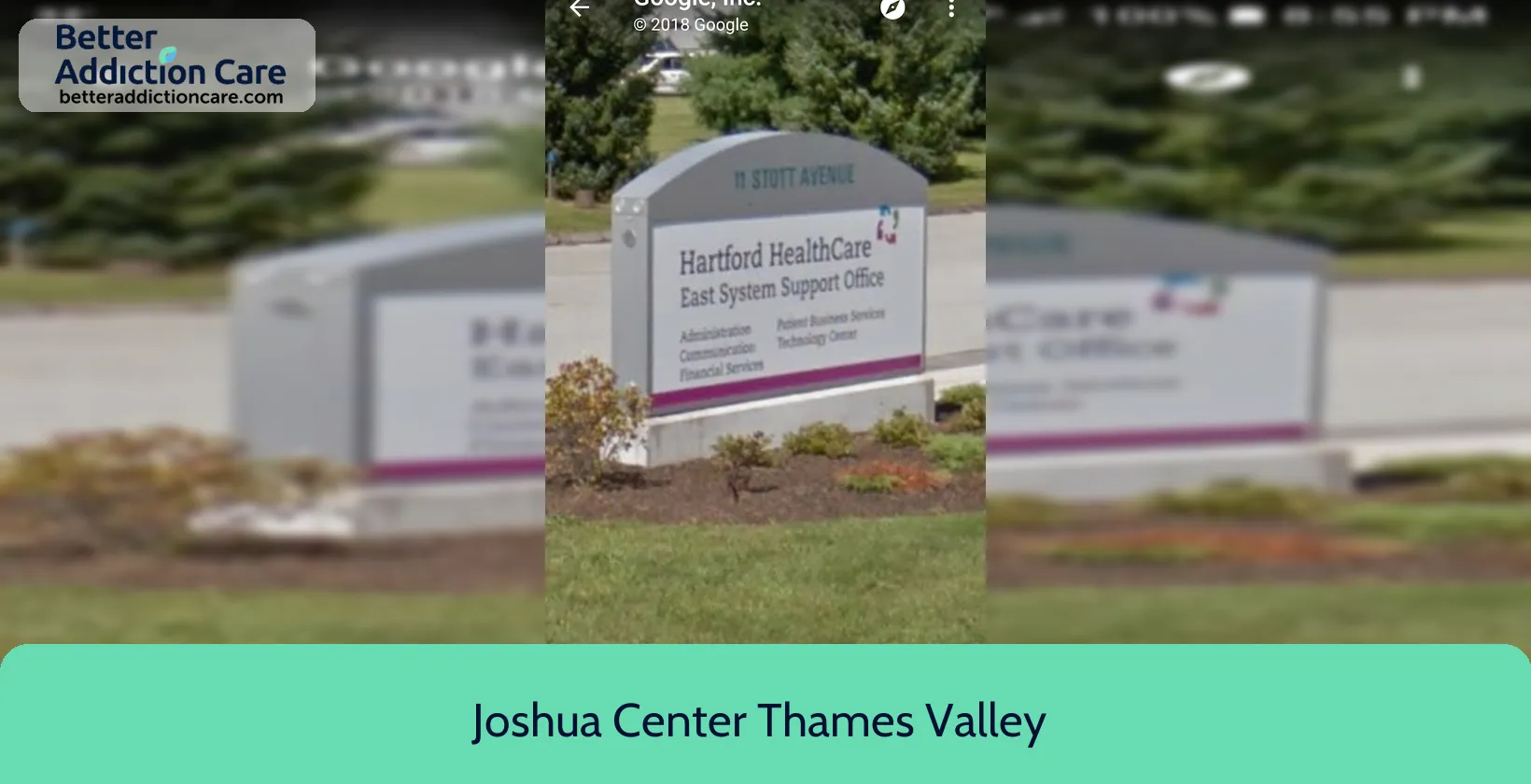
6.65
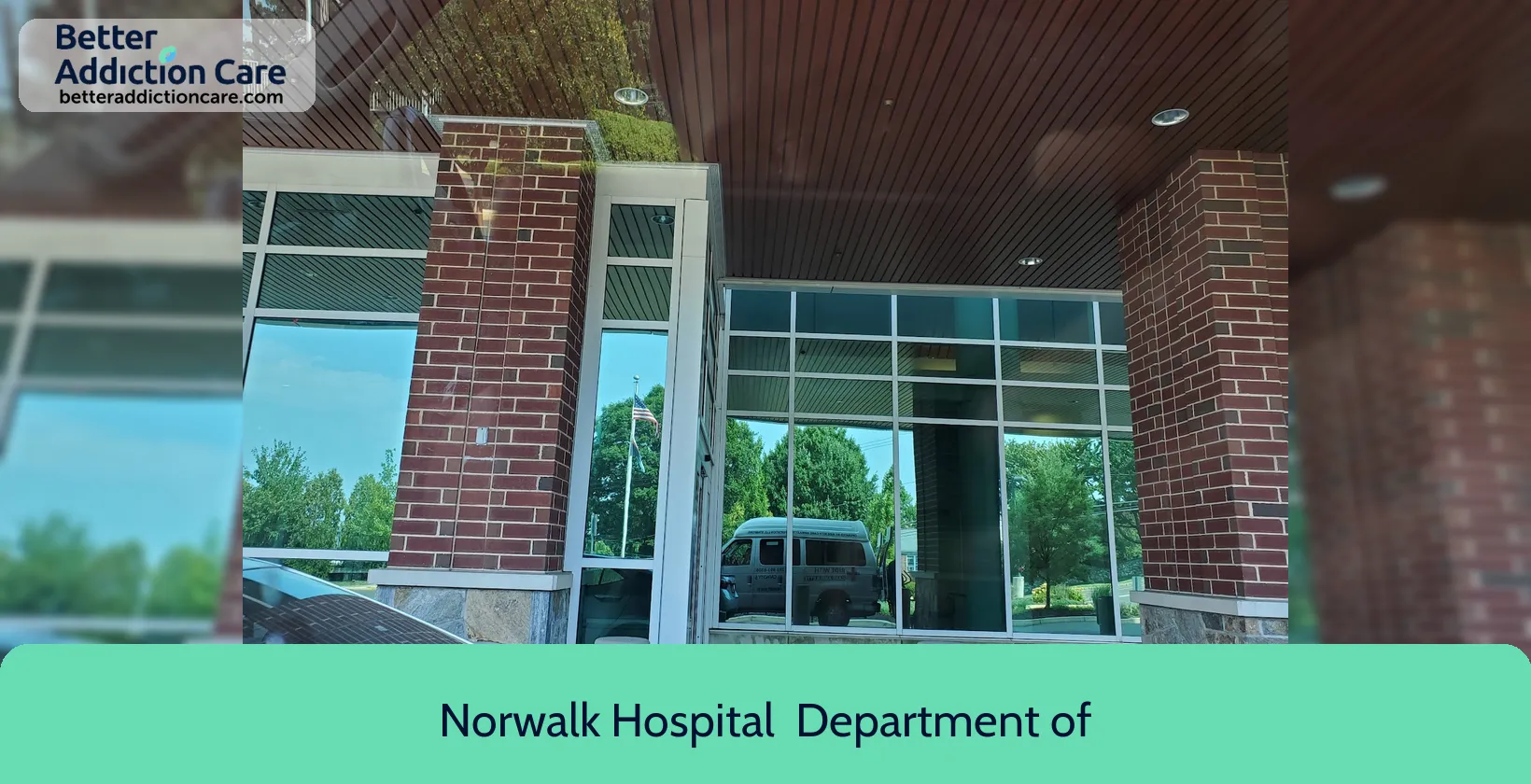
6.62
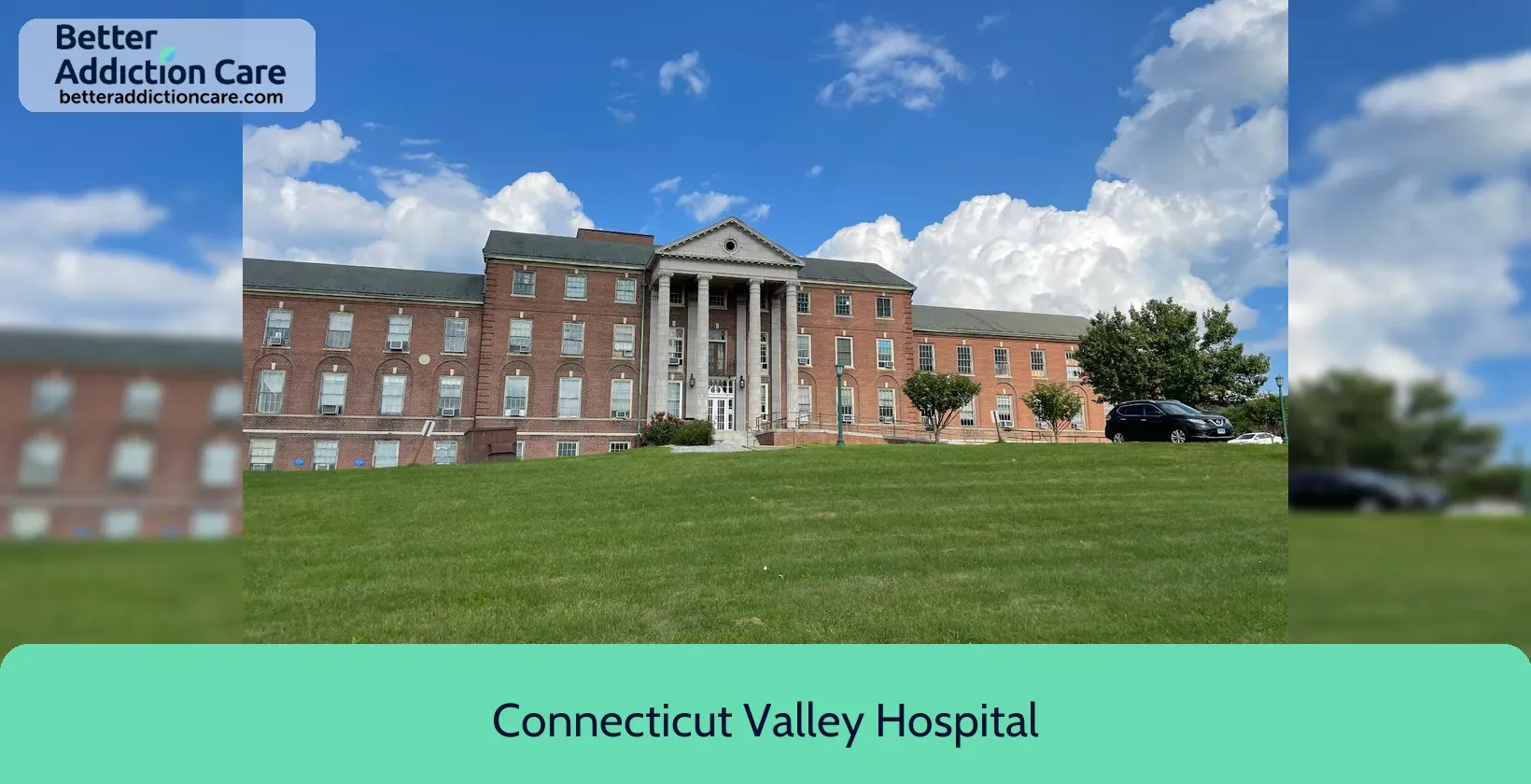
6.71

7.38
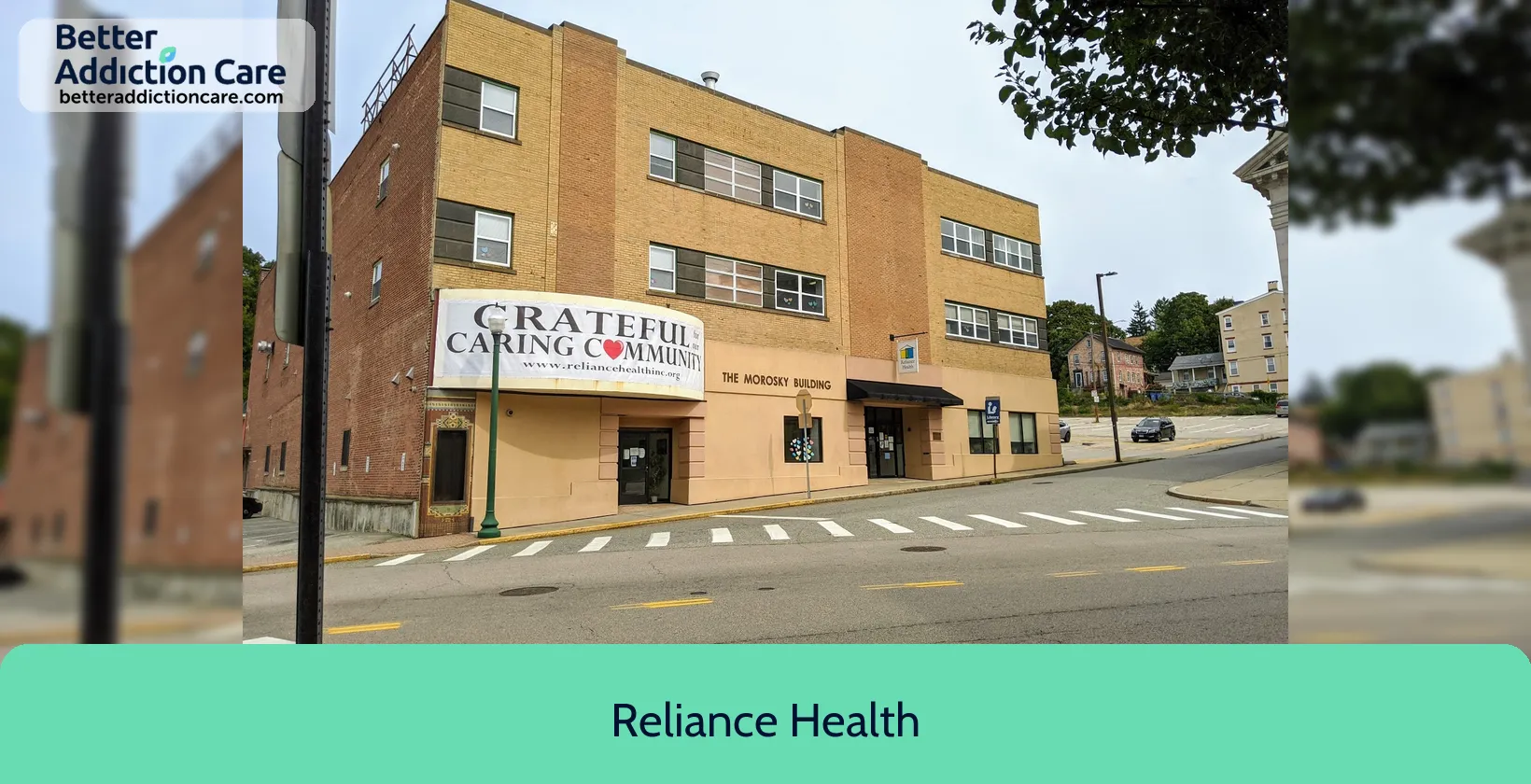
6.74
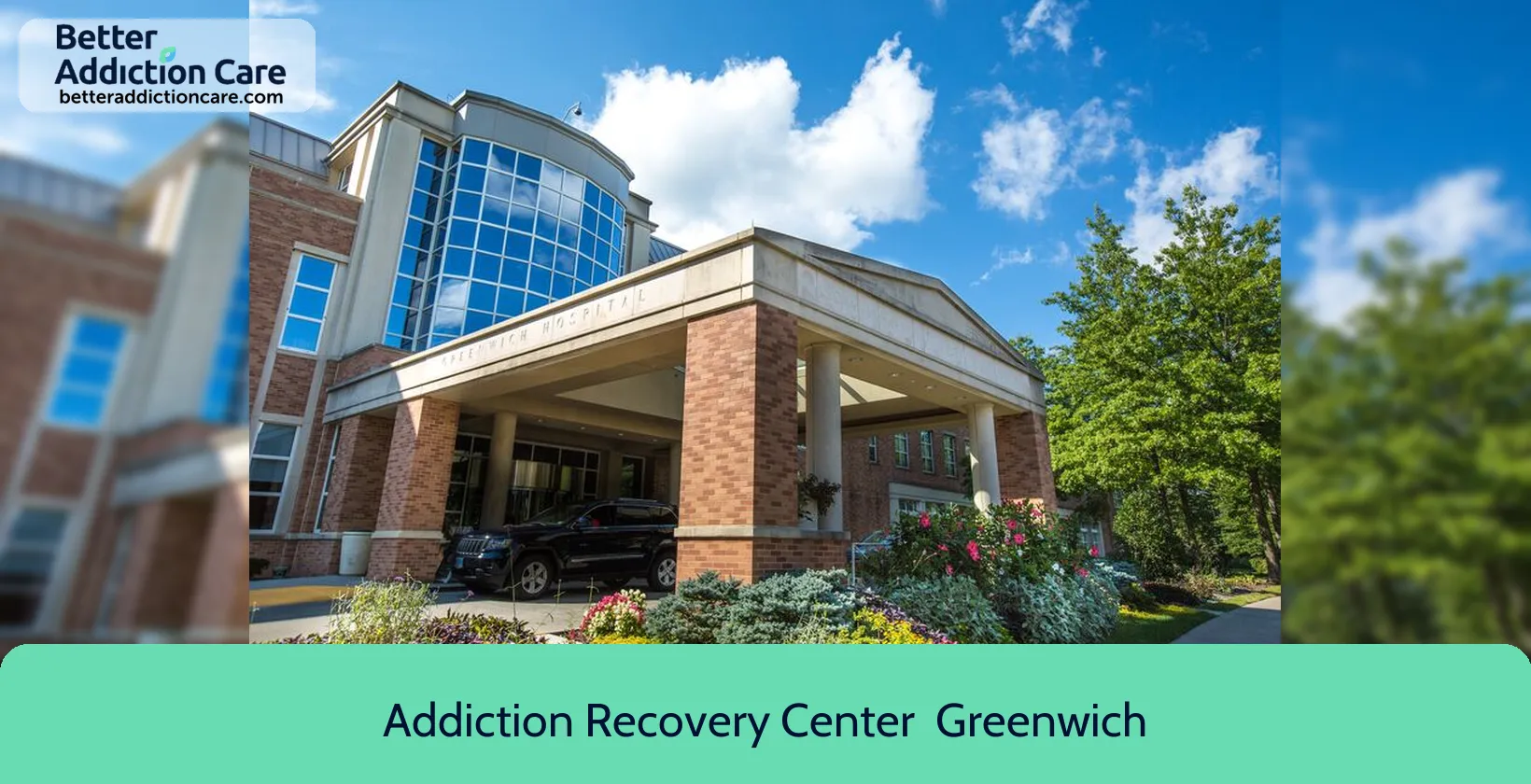
7.16
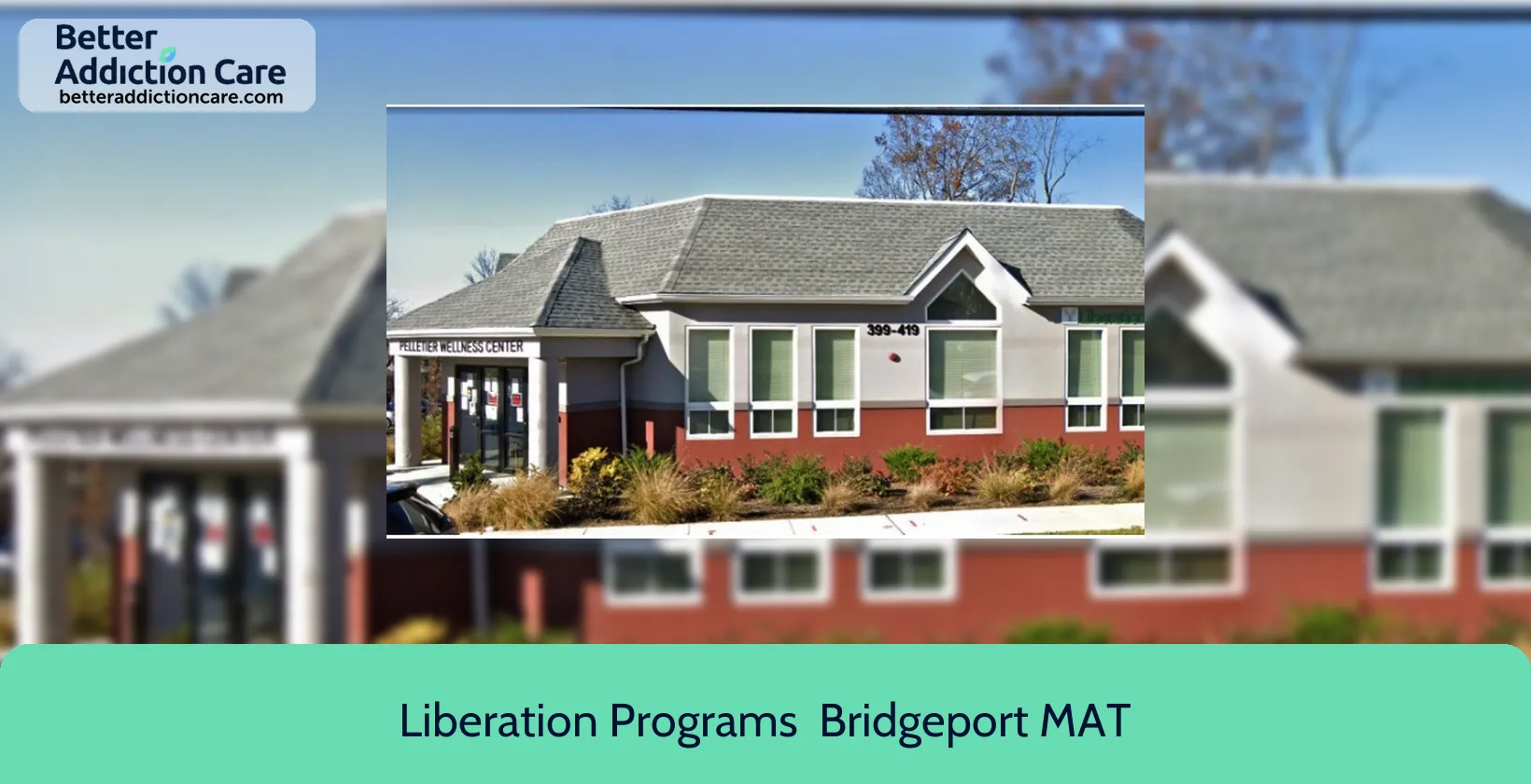
7.51
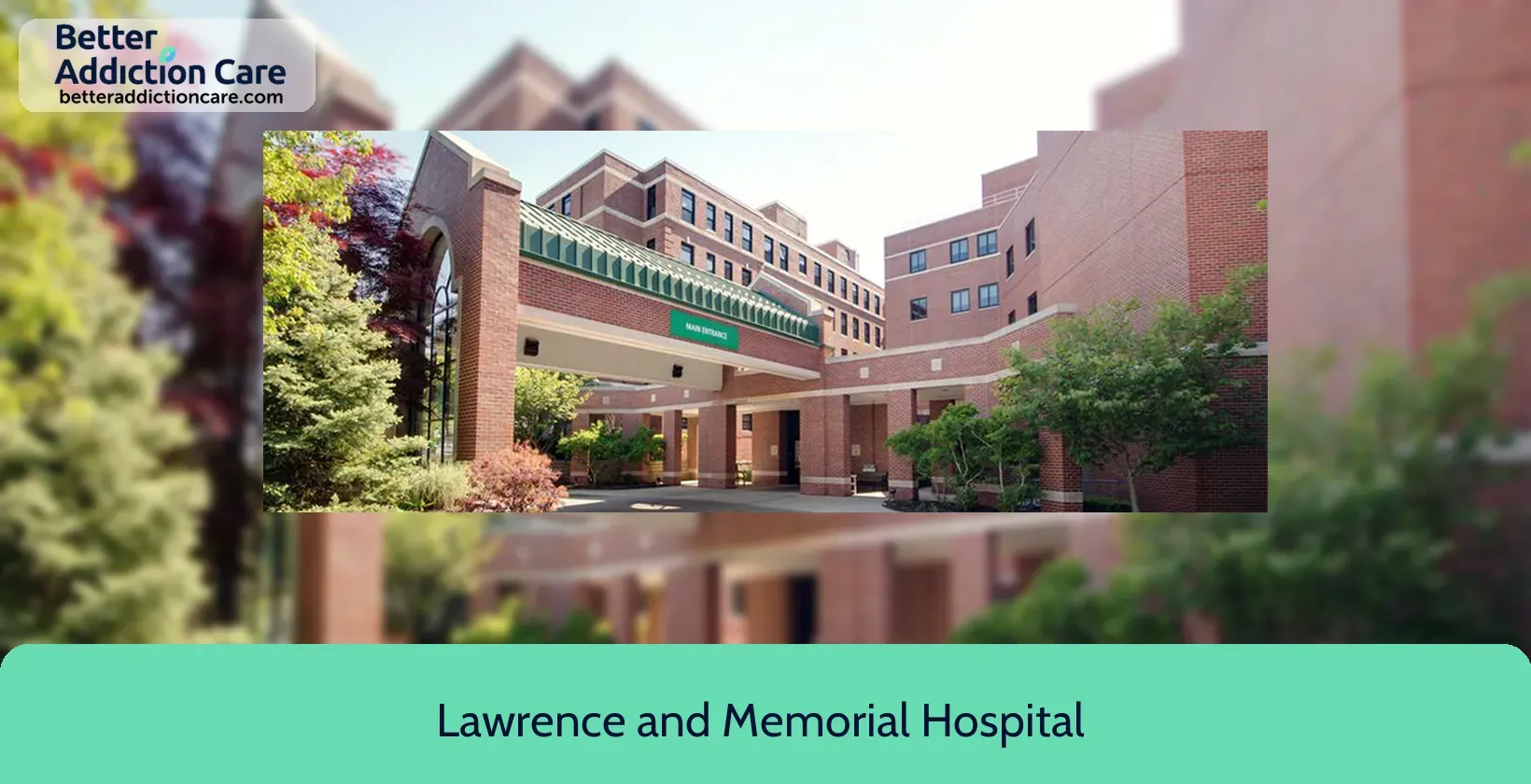
6.65

7.08

7.46

7.51
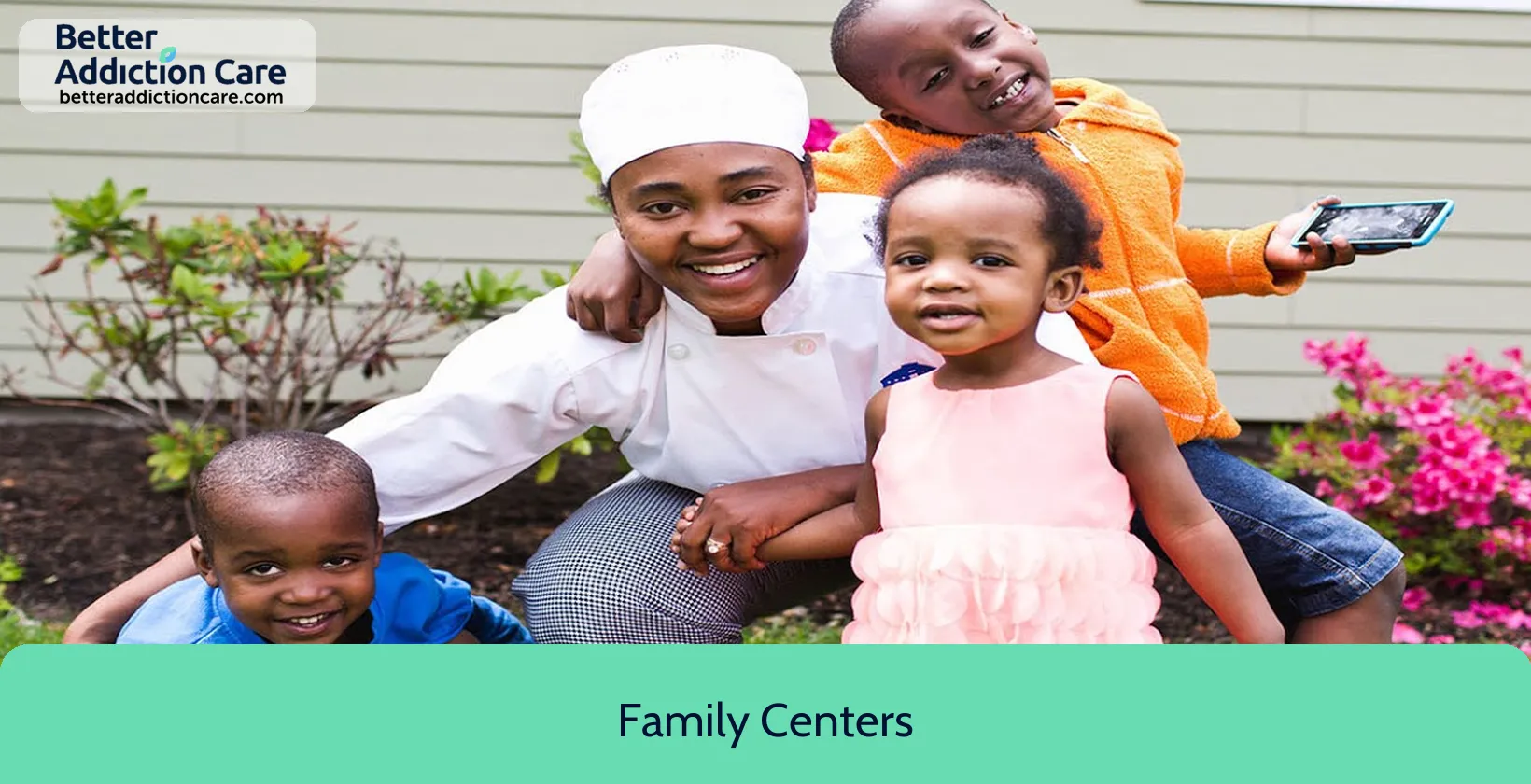
6.65

6.99
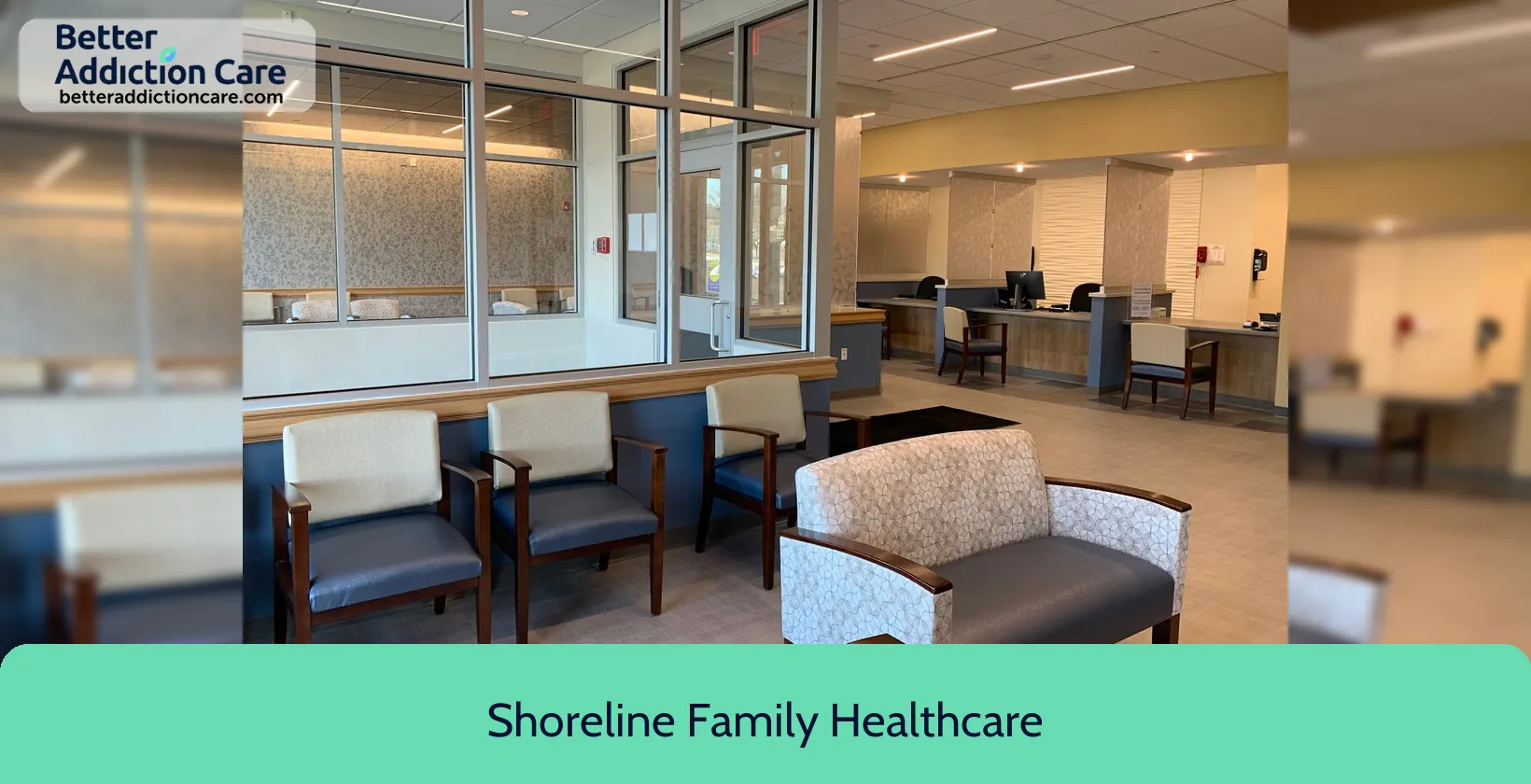
7.28

8.27

6.82

7.62

6.99

7.58

7.45

7.60

7.17

7.77

6.62
Substance abuse and Mental Health facilities Report for Connecticut
34th
Cheapest To Most Expensive State Rank
233
Substance Abuse Facilities
43,404
Number of Patients Annually
41,460
Annual Enrollments
$70M
Spent on Outpatient Services (Million)
$1,705.00
Avg Outpatient Rehab Cost
1,620
Residential Admissions
$93M
Spent on Residential Treatment (Million)
$57,667.00
Residential Rehab Pay (Up To)
324
Total Patients
1
Free Drug Rehab Facilities
Alcoholism, Drug Abuse, Mental Health, and Treatment in Connecticut
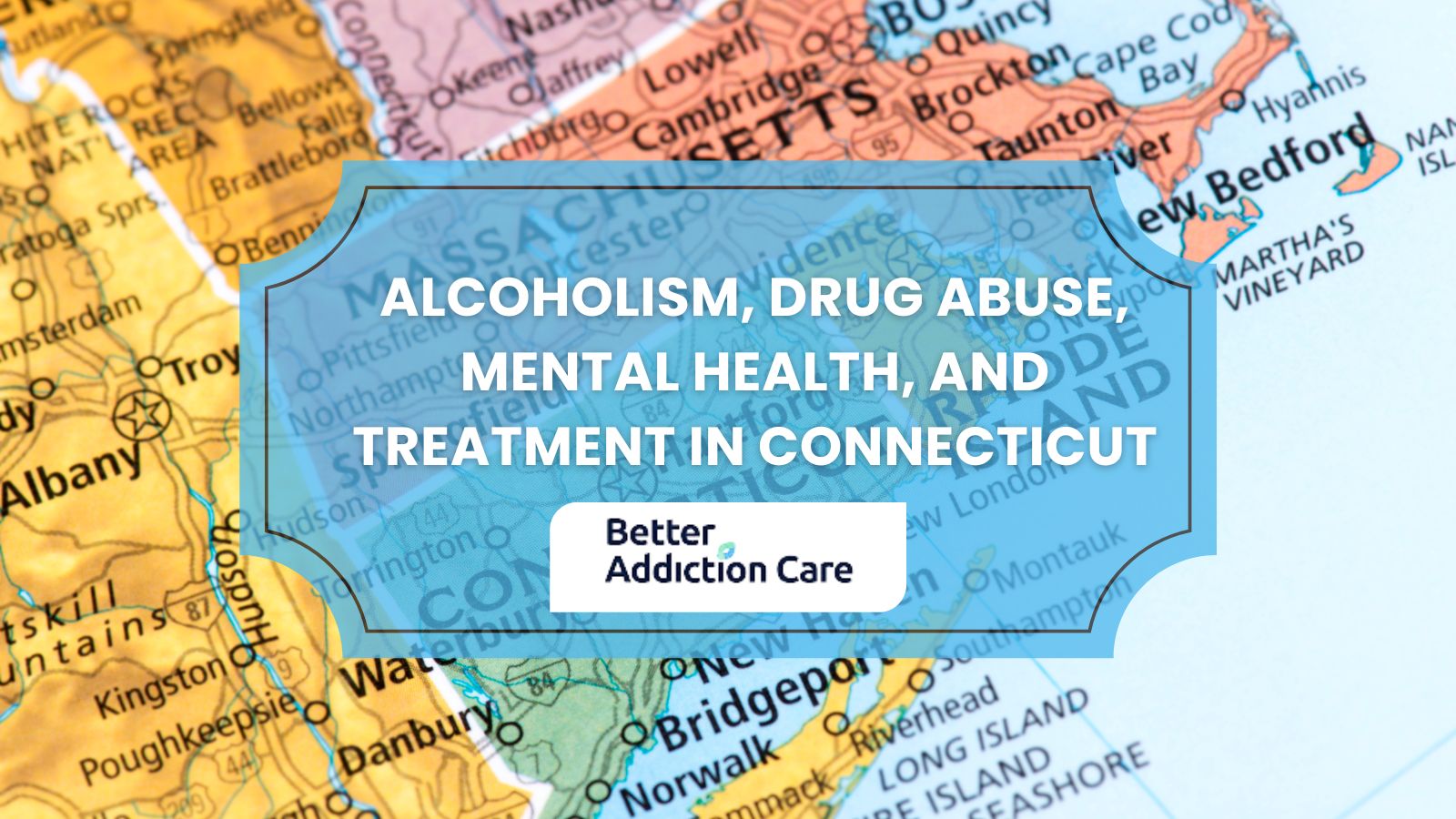
What are the main addictions people in Connecticut suffer from?
The main addictions people in Connecticut suffer from include:
- Opioids Addiction: In 2024, the state of Connecticut reported 3,060,000 individuals aged 12 and older affected with Opioid overdose addiction. Opioids Addiction is linked to 85% of opioid-related deaths, impacting men more frequently at 2,520,000 (70% of cases) compared to women 1,080,000 which is 30%
- Alcohol Addiction: 2.23 million of individuals aged 12 and older consume alcohol, exceeding the national average (51.4%). In a population of 3.6 million adults, this number equates to 62.1% individuals. Men generally consume alcohol at higher rates 1,449,500 (65%), while women account for 780,500 (35%).
- Marijuana Addiction: 230,000 of individuals aged 18–25 reported Marijuana addiction, equates to 34.5% individuals in this age group based on Connecticut demographics. Male use is higher with 138,000 (60%), versus 92,000 (40%) for females.
- Cocaine Addiction: 75,600 of individuals aged 12 and older used cocaine. 2.1% of individuals in Connecticut have Cocaine Addiction. Male use is double that of females 50,652 (67%) vs 24,948 (33%).
- Prescription Drugs Addiction: 126,000 of individuals aged 12 and older misuse prescription pain relievers annually, that is 3.5% of individuals. Women are slightly more likely to have Prescription Drugs Addiction, accounting for 69,300 55% compared to 56,700 45% men.
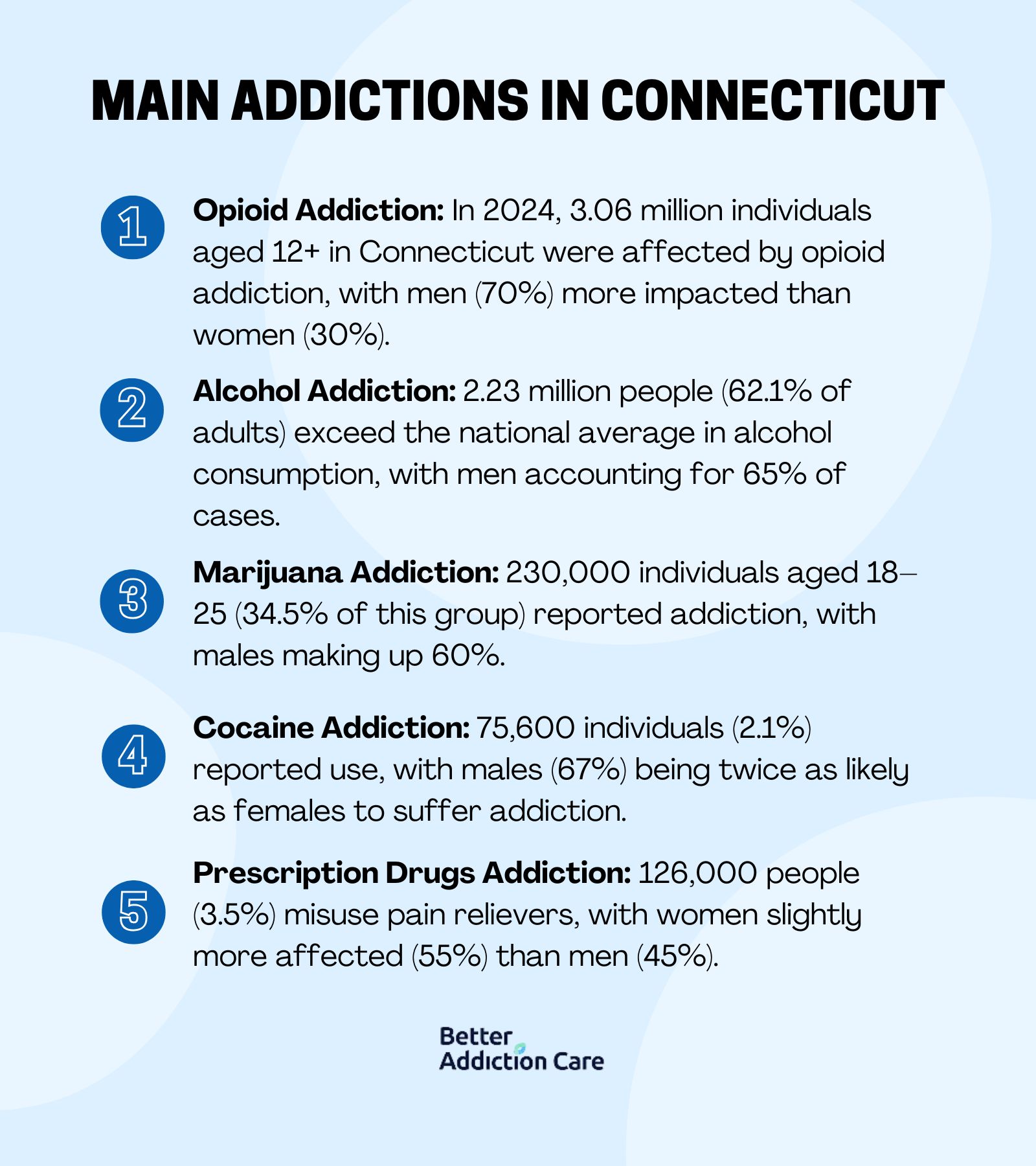
What is the cost of rehab centers in Connecticut?
The cost of a rehab center in Connecticut is $57,667 (64%). Inpatient rehab programs are costly, averaging $50,888, which is (62%). Outpatient treatment is the less expensive option, averaging $8,456, (25%).
The cost of a rehab center varies significantly depending on the type of addiction and treatment required. For instance, medical detoxification, which is often necessary for severe substance use disorders, is the most expensive treatment, averaging $142,170, an increase of $84,503 or 146% above the average.
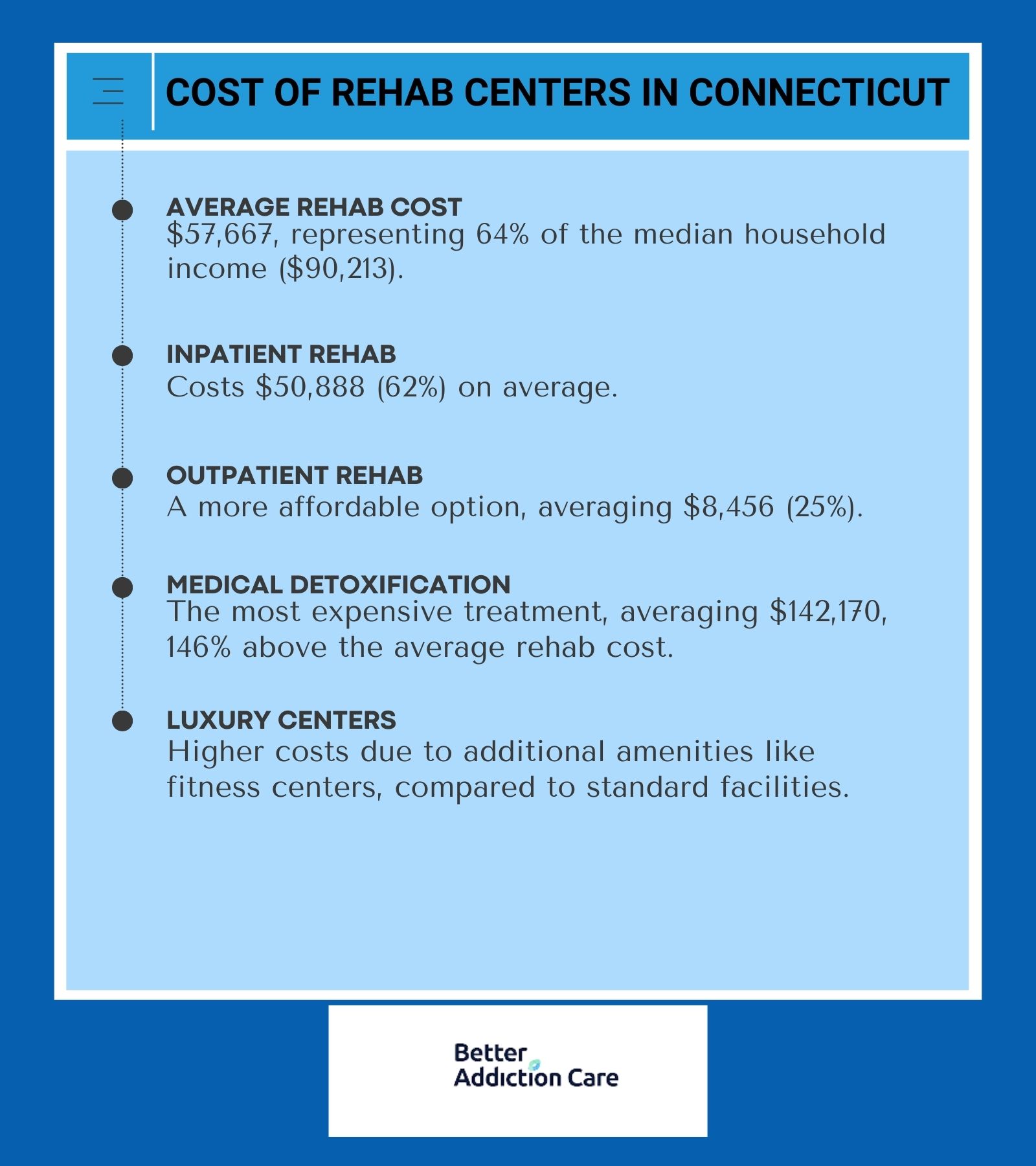
Connecticut’s median household income is $90,213, comparing this to the rehab cost of $57,667, treatment expenses amount to 64% of the median annual income, representing a significant financial burden for many households. The affordability of rehab services also vary based on the type of facility. Luxury centers with amenities such as fitness centers cost more than standard rehab facilities.
What is the cost of LGBTQ+ rehab centers in Connecticut?
The cost of LGBTQ+ rehab centers in Connecticut is $50,667 (62.5%). Inpatient rehab programs are costly, averaging $50,888, which is (62%). Outpatient treatment is the less expensive option, averaging $8,456, (25%).
LGBTQ+ rehab centers, which provide specialized services tailored to the unique needs of the community, have higher costs due to the need for tailored programs and specially trained staff. Factors such as the type of addiction also influence costs of LGBTQ+ rehab centers. For instance, treatments for opioid dependence often require intensive care, potentially increasing costs by 20% to 30%. Longer treatment durations, such as 90-day inpatient programs, raise expenses by up to 50% compared to standard 30-day programs. Luxury facilities with premium amenities, including wellness services, charge 15% to 40% more than average rates.
Connecticut’s median household income is $90,213, making the average treatment cost of LGBTQ+ rehab centers $50,667 (62.5%) of the annual income. This highlights the financial burden LGBTQ+ rehab centers provide for many families. The type of rehab center significantly impacts expenses, with luxury centers costing more than standard facilities.
What is the cost of Faith-Based rehab centers in Connecticut?
The cost of Faith-Based rehab centers in Connecticut is $46,667 (57.09%). Inpatient rehab programs are costly, averaging $40,888, which is (60%). Outpatient treatment is the less expensive option, averaging $7,456, equating to 22%.
This cost of Faith-Based rehab centers varies depending on factors such as the type of addiction, with treatments for substances like opioids requiring specialized care that increase costs by 10% to 20%, or $5,667 to $11,333. Program duration also plays a role, as extended programs add 15% to 25% to the overall cost, equating to an additional $8,500 to $14,167. The level of care impacts expenses, with inpatient programs being generally more expensive than outpatient services, averaging $629.63 per day without insurance coverage.
Connecticut’s median household income is $90,213, making the average treatment cost of Faith-Based rehab centers $46,667 (57.09%) of the annual income, which highlights the significant financial commitment for many households. The cost of Faith-Based rehab also varies based on the type of center, as non-profit or state-funded facilities offer lower fees or sliding scale options, whereas private centers charge more.
What is the cost of Men-Only rehab centers in Connecticut?
The cost of Men-Only rehab centers in Connecticut is $55,667 (65.05%). Inpatient rehab programs are costly, averaging $50,888, which is (62%). Outpatient treatment is the less expensive option, averaging $8,456, equates to 25%.
The cost of Men-Only rehab centers varies based on factors such as the type of addiction, with treatments for substances like opioids requiring specialized care that increase costs by 10% to 20%, or $5,767 to $11,533. The duration of the program also impacts the overall expense, as extended programs add 15% to 25% to the cost, equating to an additional $8,650 to $14,417. The level of care is another significant factor, with inpatient programs being more expensive than outpatient services, averaging $629.63 per day without insurance coverage.
Connecticut’s median household income is $90,213, making the average treatment cost of Men-Only rehab centers $55,667 (62.05%) of the annual income, highlighting the financial burden it poses for many households. Costs of Men-Only rehab centers also vary depending on the type of rehab center, with non-profit or state-funded facilities often offering lower fees or sliding scale options, while private centers tend to charge more.
What is the cost of Women-Only rehab centers in Connecticut?
The cost of Women-Only rehab centers in Connecticut is $52,667 (62.9%). Inpatient rehab programs are costly, averaging $49,888, which is (60%). Outpatient treatment is the less expensive option, averaging $8,156, equating to 24%.
This cost of Women-Only rehab centers varies based on factors such as the type of addiction, with treatments for substances like opioids requiring specialized care that increase costs by 10% to 20%, or $5,767 to $11,533. The duration of the program also impacts the overall expense, as extended programs add 15% to 25% to the cost, equating to an additional $8,650 to $14,417. The level of care is another significant factor, with inpatient programs being more expensive than outpatient services, averaging $629.63 per day without insurance coverage.
Connecticut’s median household income is $90,213, making the average treatment cost of Women-Only rehab centers $52,667 (62.9%) of the annual income, highlighting the financial burden it poses for many households. Costs of Women-only rehab centers also vary depending on the type of rehab center, with non-profit or state-funded facilities often offering lower fees or sliding scale options, while private centers tend to charge more.
What is the cost of Teen rehab centers in Connecticut?
The cost of Teen Rehab centers in Connecticut is $56,667 (63.5%). Inpatient rehab programs are costly, averaging $50,888, which is (62%). Outpatient treatment is the less expensive option, averaging $8,456 (25%).
Cost of Teen Rehab centers varies based on several factors. The type of addiction plays a significant role; treatments for substances like opioids require specialized care, potentially increasing costs by 10% to 20%, or $5,767 to $11,533. The duration of the program also affects the overall expense, with extended programs adding 15% to 25% to the total cost, equating to an additional $8,650 to $14,417. The level of care is another important factor, inpatient programs are generally more expensive than outpatient services, with inpatient care costing $629.63 per day without insurance coverage.
Connecticut’s median household income is $90,213, making the average treatment cost of Teen Rehab centers $56,667 constitute 63.5% of the annual income, indicating a significant financial commitment for many families. Costs of Teen rehab centers vary depending on the type of rehab center; non-profit or state-funded facilities offer lower fees or sliding scale options, while private centers charge more
What is the cost of Young Adult rehab centers in Connecticut?
The cost of Young Adult rehab centers in Connecticut is $55,667 (65.05%). Inpatient rehab programs are costly, averaging $50,888, which is (62%). Outpatient treatment is the less expensive option, averaging $8,456 (25%).
The cost of Young Adult rehab centers varies based on factors such as the type of addiction, with treatments for substances like opioids requiring specialized care that increase costs by 10% to 20%, or $5,767 to $11,533. The duration of the program also impacts the overall expense, as extended programs add 15% to 25% to the cost, equating to an additional $8,650 to $14,417. The level of care is another significant factor, with inpatient programs being more expensive than outpatient services, averaging $629.63 per day without insurance coverage.
Connecticut’s median household income is $90,213, making the average treatment cost of Young Adult rehab centers $55,667 (62.05%) of the annual income, highlighting the financial burden it poses for many households. Costs of Young Adult rehab centers also vary depending on the type of rehab center, with non-profit or state-funded facilities often offering lower fees or sliding scale options, while private centers tend to charge more.
What is the cost of Luxury Rehab centers in Connecticut?
The cost of Luxury rehab centers in Connecticut is $97,000, which equates to 107%. Inpatient programs are generally more expensive at $96,900 than outpatient services that cost $18,870. Luxury Rehab centers in Connecticut offer high-end amenities and personalized care, with costs varying based on the facility and services provided. For instance, Prive-Swiss, a luxury rehab center in Connecticut, charges $96,900 for a 30-day program.
Factors influencing the cost of Luxury Rehab centers in Connecticut include the type of addiction; treatments for substances like opioids require specialized care, potentially increasing costs by 10% to 20%, or $9,700 to $19,400. Program duration also affects expenses, with extended programs adding 15% to 25% to the total cost, equating to an additional $14,550 to $24,250. The level of care is another important factor; inpatient programs are generally more expensive than outpatient services, with inpatient care costing $629.63 per day without insurance coverage.
The cost of luxury rehab represents 107% of the annual income, since Connecticut's median household income is at $90,213, indicating a significant financial commitment for many families.
Costs of Luxury Rehab centers vary depending on the type of rehab center; non-profit or state-funded facilities offer lower fees or sliding scale options, while private centers charge more.
What is the cost of Dual Diagnosis rehab centers in Connecticut?
The cost of Dual Diagnosis rehab centers in Connecticut is $52,667 (62.9%). Inpatient rehab programs are costly, averaging $49,888, which is (60%). Outpatient treatment is the less expensive option, averaging $8,156 (24%).
This cost of Dual Diagnosis rehab centers varies based on factors such as the type of addiction, with treatments for substances like opioids requiring specialized care that increase costs by 10% to 20%, or $5,767 to $11,533. The duration of the program also impacts the overall expense, as extended programs add 15% to 25% to the cost, equating to an additional $8,650 to $14,417. The level of care is another significant factor, with inpatient programs being more expensive than outpatient services, averaging $629.63 per day without insurance coverage.
Connecticut’s median household income is $90,213, making the average treatment cost of Dual Diagnosis rehab centers $52,667, 62.9% of the annual income, highlighting the financial burden it poses for many households. Costs of Dual Diagnosis rehab centers also vary depending on the type of rehab center, with non-profit or state-funded facilities often offering lower fees or sliding scale options, while private centers tend to charge more.
Is drug abuse and addiction a problem in Connecticut?
Yes, drug abuse and addiction is a problem in Connecticut. The state of Connecticut has one of the highest drug overdose death rates in the United States, with an age-adjusted rate of 38.3 unintentional drug-induced deaths per 100,000 population in 2024, compared to the national average of 30.1. Overdose deaths involving fentanyl have increased dramatically, from just 3.6% of cases in 2022 to nearly 80% by 2024.
Illicit drug use has also risen steadily, with 16.38% of Connecticut residents aged 12 and older reporting drug abuse and addiction, up from 13.4% in 2022. The strain on healthcare and support systems has intensified, with emergency department visits for drug abuse and addiction increasing by 18% from 2022 to 2024. The number of individuals seeking treatment for opioid addiction growing from 11,000 in 2023 to over 15,000 in 2024, highlights the worsening nature of drug abuse and addiction in Connecticut.
Is alcoholism a problem in Connecticut?
Yes, alcoholism is a problem in Connecticut. Connecticut's per capita alcohol consumption has consistently exceeded the national average for over a decade. In 2024, Connecticut residents consumed an average of 2.53 gallons of alcohol per person, the highest since 1998.
This elevated consumption of Alcohol correlates with a rise in alcohol-related fatalities; from 2019 to 2024, the state of Connecticut's alcohol-related death rate nearly tripled from 4.5 to 12 per 100,000 people, marking a 167% increase, the highest percentage increase among all U.S. states.
The prevalence of binge drinking among young adults aged 18-25 in Connecticut was 42.2%, higher than the national average of 37.8%, indicating a persistent issue with excessive alcohol use in this demographic.
Is Mental Health a problem in Connecticut?
Yes, mental health is a problem in Connecticut. In 2024, 20.2% of adults in Connecticut reported experiencing any mental illness, with the highest prevalence (32.4%) among individuals aged 18-25, an increase from 17.6% in 2022. Depression rates among adults have also risen steadily, with 14.4% diagnosed in 2024, compared to 12.8% in 2020. Younger adults aged 18-34 and females showed the highest rates of depression, at 18.1% and 17.8% respectively. The crisis is particularly acute among high school students, with 35.6% reporting prolonged feelings of sadness or hopelessness that interfered with daily activities, up from 30% in 2022. These statistics of mental health problems highlight the growing mental health challenges in Connecticut, affecting both youth and adults at increasing rates over time.
Can you travel to Connecticut for rehab?
Yes, you can travel to Connecticut for rehab. Traveling to Connecticut for rehab is an excellent choice due to Connecticut's unique advantages. Firstly, Connecticut offers a wide range of high-quality rehab centers, including specialized facilities for dual diagnosis, luxury, and faith-based treatments, providing tailored care for diverse needs. Secondly, Connecticut's serene environment, with picturesque coastal towns, scenic forests, and tranquil countryside, creates an ideal setting for recovery, offering a peaceful backdrop to focus on healing. Thirdly, Connecticut’s proximity to major cities like New York and Boston makes it highly accessible while maintaining a sense of retreat from the hustle of urban life. These factors of traveling to Connecticut make Connecticut an attractive destination for individuals seeking effective and restorative rehab programs.
Can addiction be treated in Connecticut?
Yes, addiction can be treated in Connecticut due to several key factors. Firstly, Connecticut is home to a wide variety of rehab centers offering evidence-based treatment approaches, including cognitive-behavioral therapy (CBT), medication-assisted treatment (MAT), and holistic therapies tailored to individual needs. Secondly, Connecticut has robust support systems, including outpatient programs, aftercare services, and peer support groups, ensuring long-term recovery options for those in treatment.
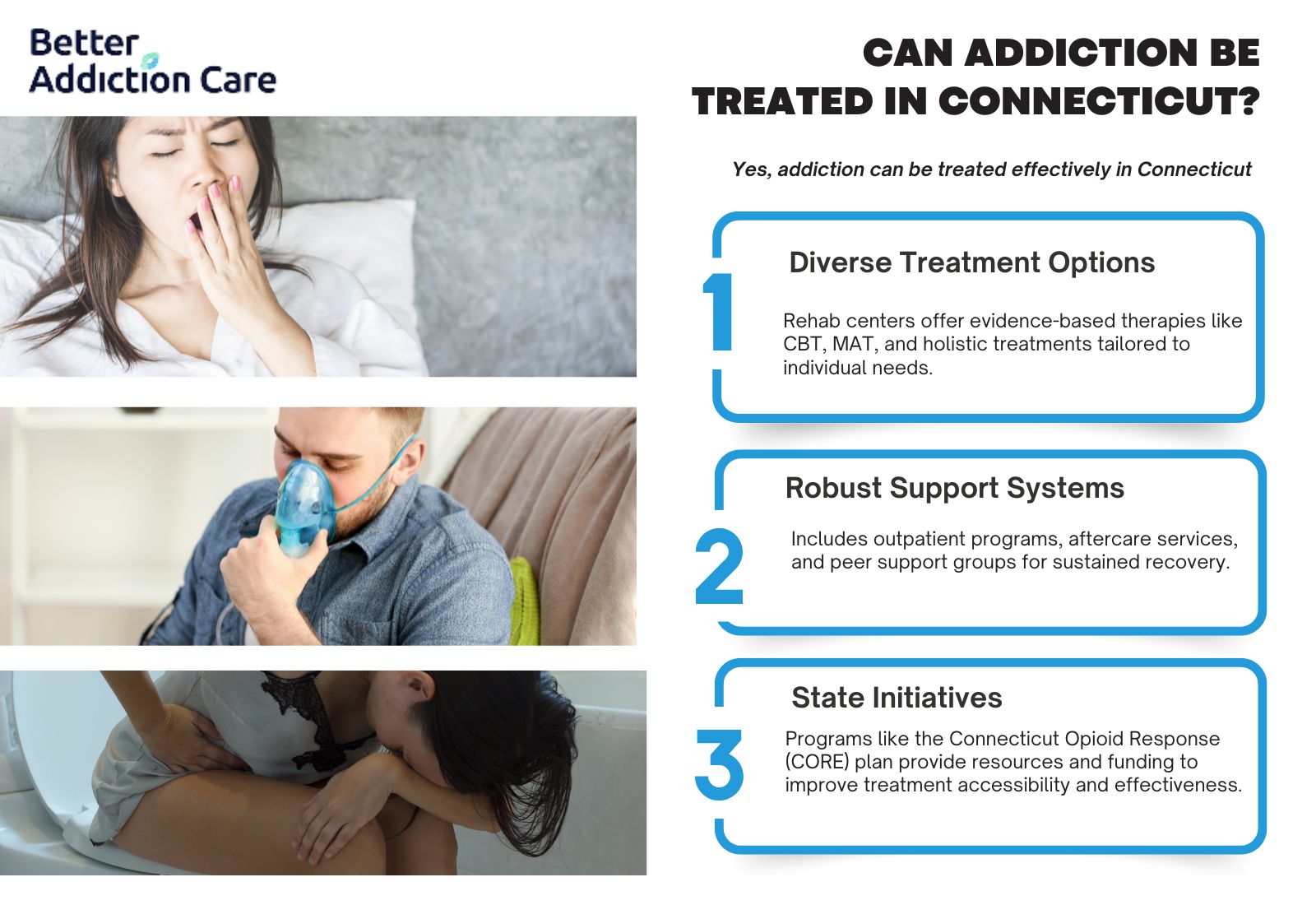
Thirdly, Connecticut initiatives such as the Connecticut Opioid Response (CORE) plan provide comprehensive resources and funding to combat addiction, making treatment more accessible and effective. These factors contribute to Connecticut’s ability to address addiction and support individuals on their recovery journey.
What is the state of Connecticut?
The state of Connecticut is located in the northeastern United States, is bordered by Massachusetts to the north, Rhode Island to the east, New York to the west, and the Long Island Sound to the south. As of 2024, Connecticut's population is 3.61 million, with a gender distribution of 48.99% male and 51.01% female. Economically, Connecticut is among the wealthiest states in the nation, boasting a median household income of $90,213, which is significantly higher than the national median. This affluence is reflected in Connecticut's high standard of living and robust economic indicators.
What is the population of Connecticut?
The population of Connecticut is 3,605,597 (85%), with a gender distribution of 1,767,000 males (48.99%) and 1,838,000 females (51.01%). The age group composition reveals diverse demographics: 5.07% of the population is under 5 years old (182,768), 5.45% are aged 5 to 9 (196,600), and 6.16% are aged 10 to 14 (222,267). The age bracket of 15 to 19 accounts for 6.86% (247,501), while 20 to 24-year-olds make up 6.70% (241,391). Adults aged 25 to 29 represent 6.20% (223,561), and those 30 to 34 comprise 6.26% (225,905). The 35 to 39 age group accounts for 6.30% (227,187), while 40 to 44-year-olds represent 6.04% (217,865).
Individuals aged 45 to 49 make up 6.18% (222,967), and 50 to 54-year-olds are the largest single group at 7.00% (252,142). The 55 to 59 demographic represents 7.37% (266,117), with 60 to 64-year-olds accounting for 7.10% (255,938). Older age groups include 65 to 69 years at 5.57% (200,629), 70 to 74 years at 4.49% (161,736), 75 to 79 years at 2.99% (107,834), 80 to 84 years at 1.96% (70,912), and those 85 and older at 2.44% (87,997). These statistics of population distribution illustrate Connecticut's diverse population across genders and age groups.
What is the income of people from Connecticut?
The income of people from Connecticut is $52,034, per capita income, and the median household income stands at $90,213. Income levels vary across different age groups and genders. Individuals aged 25 to 44 have an average income of $44,231, while those aged 45 to 64 earn $53,865. For seniors aged 65 to 74, the average income is $51,800, and for those 75 to 84, it is $41,234. Gender disparities are evident, with men earning a median income of $53,119, 25% higher than the national average, and women earning 75% of men's earnings. These figures of income highlight the economic landscape of Connecticut, reflecting variations in income based on age and gender.


